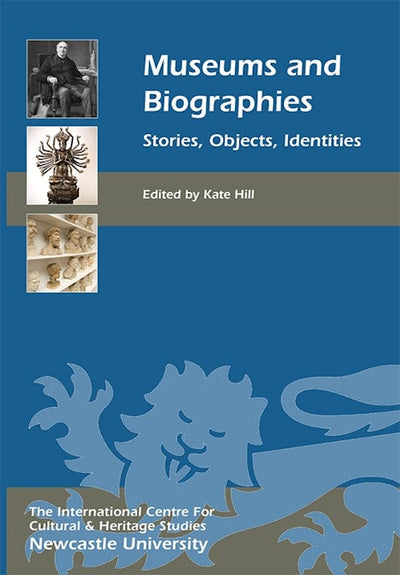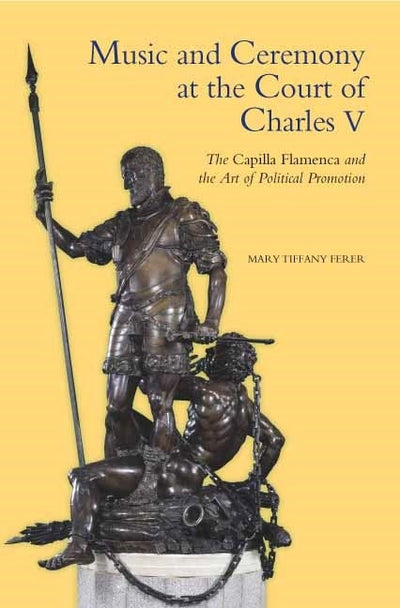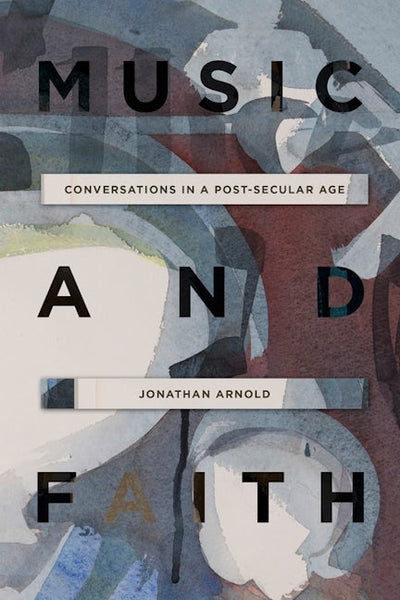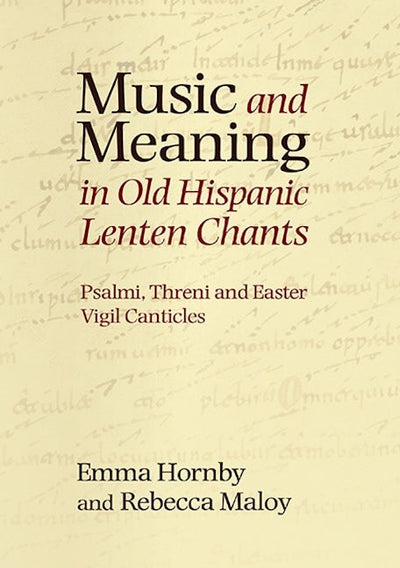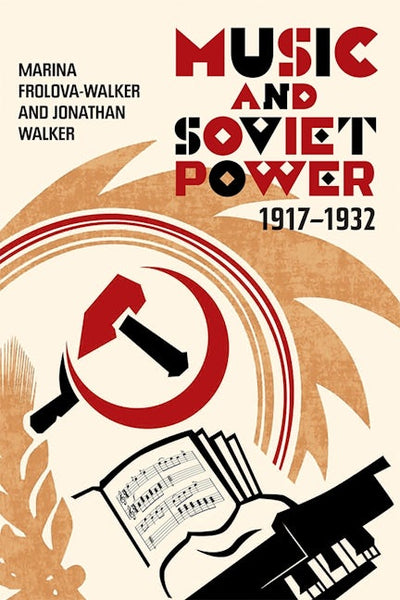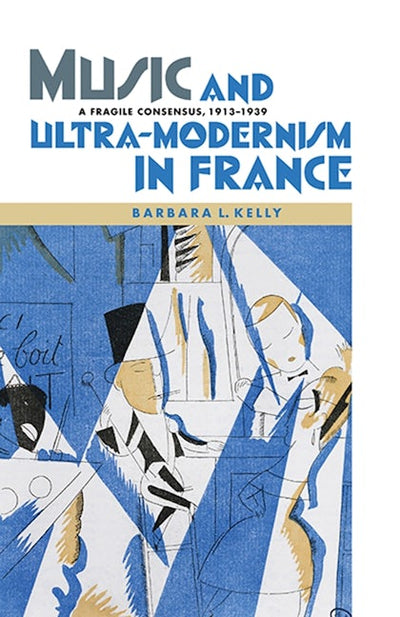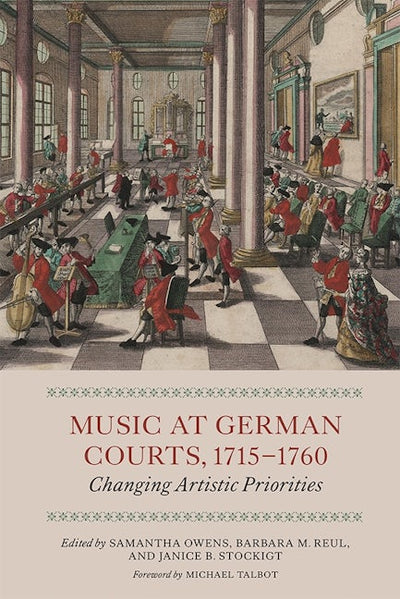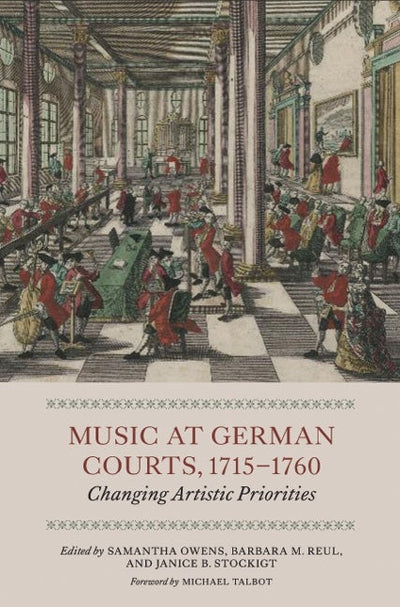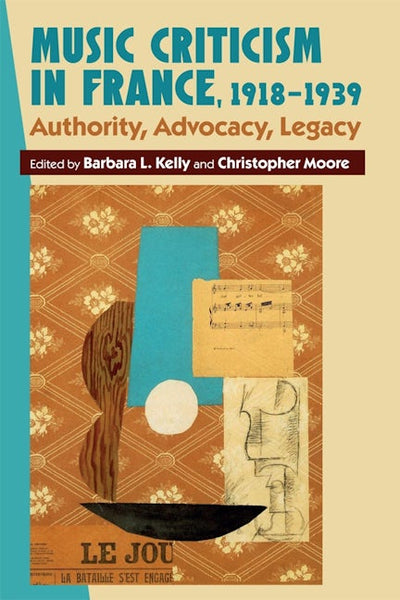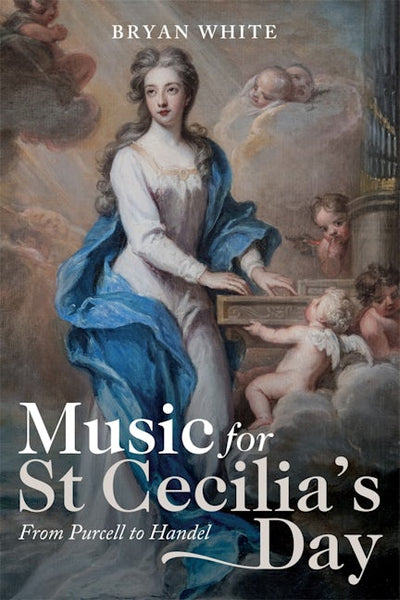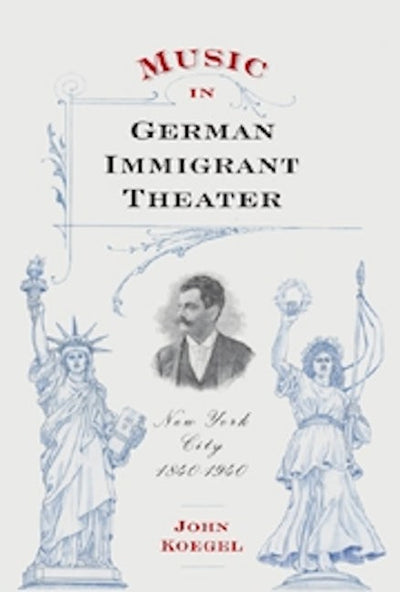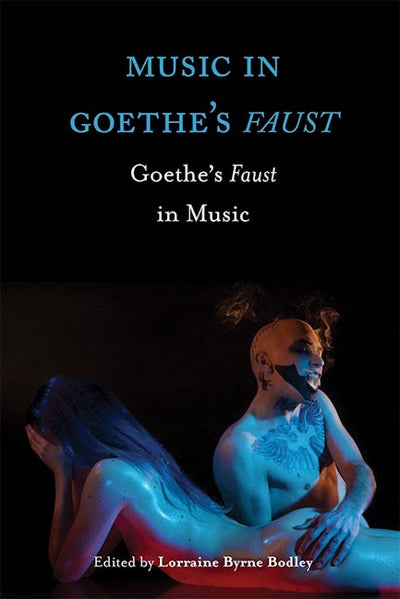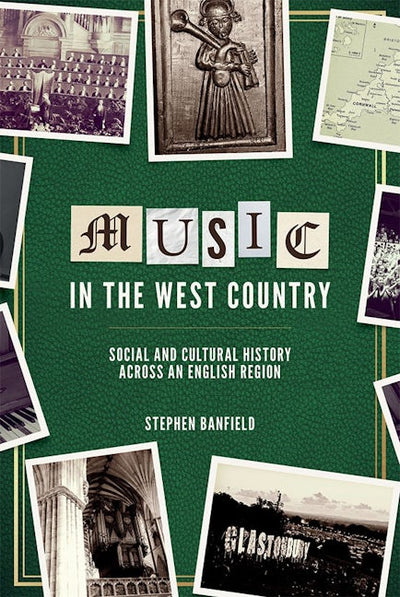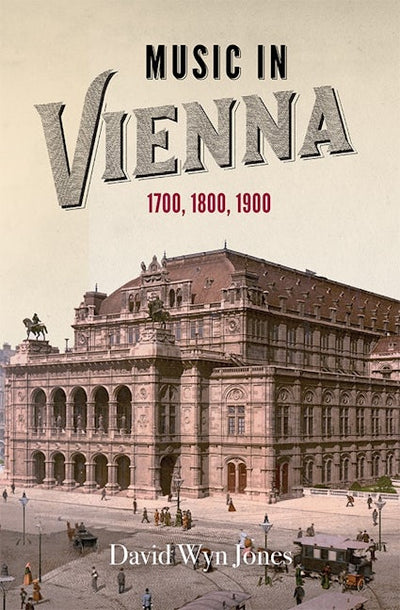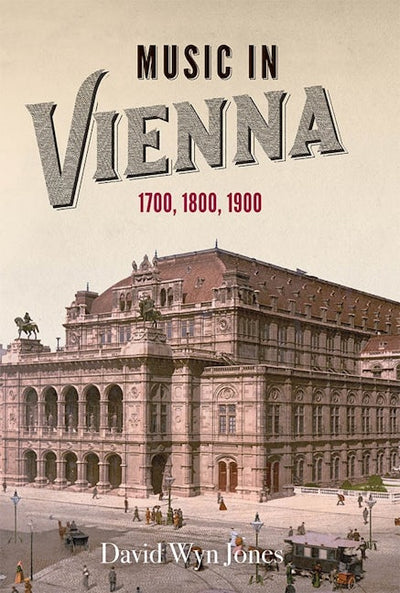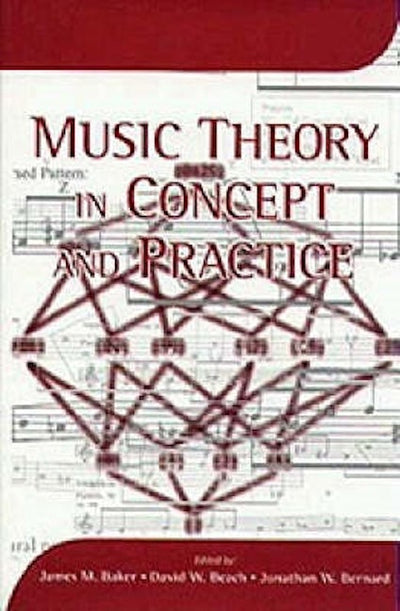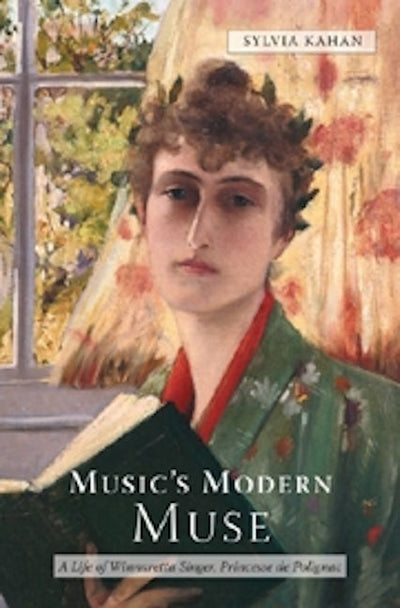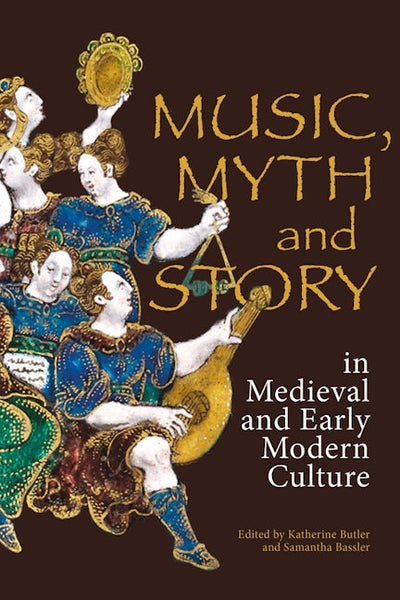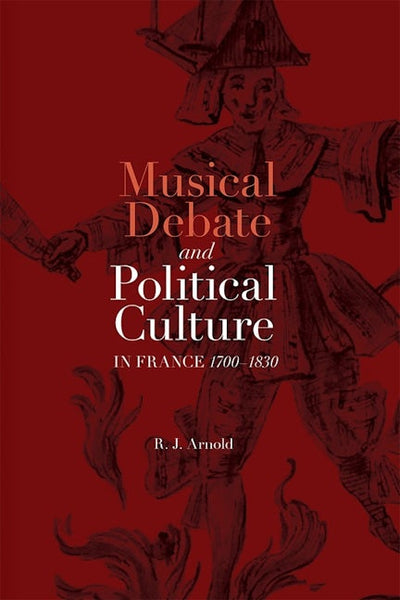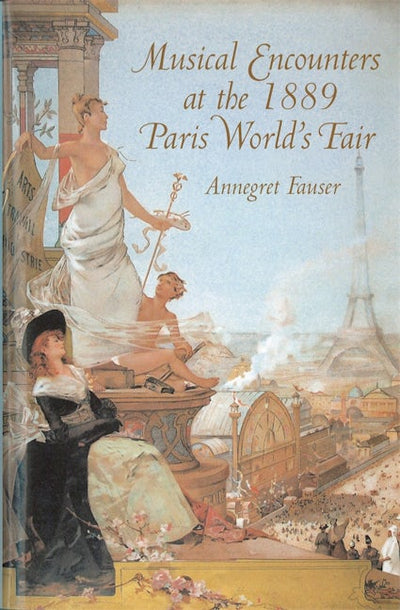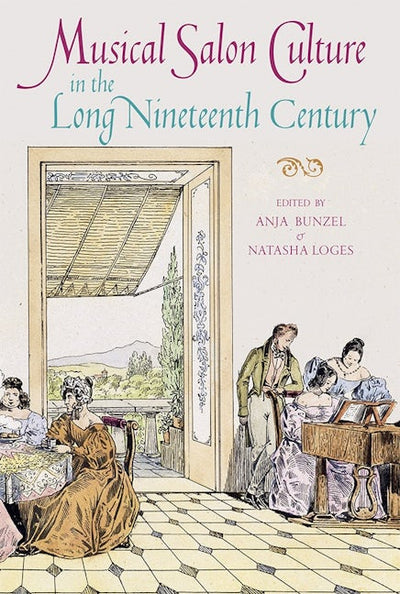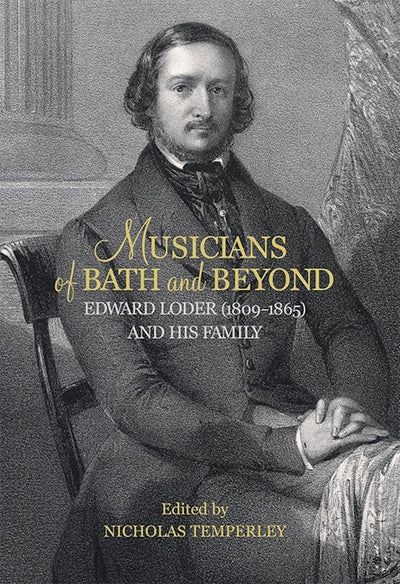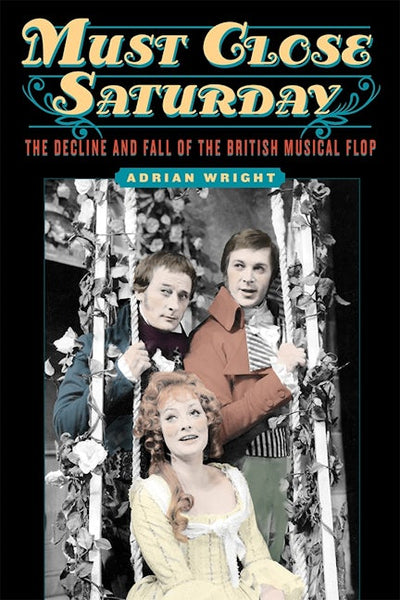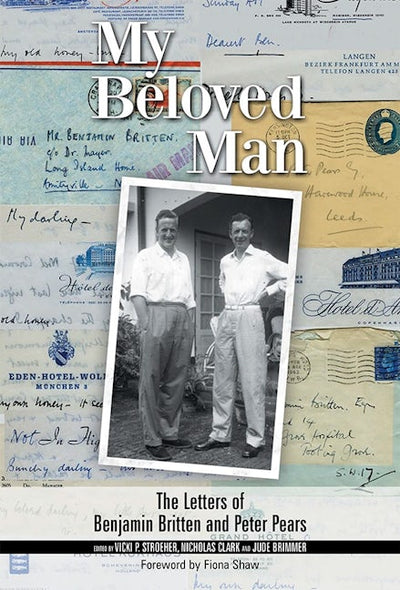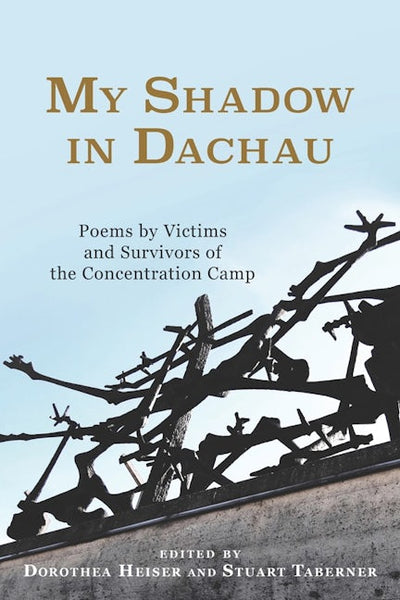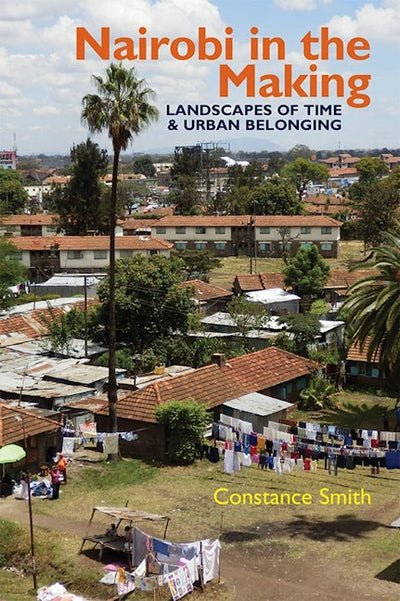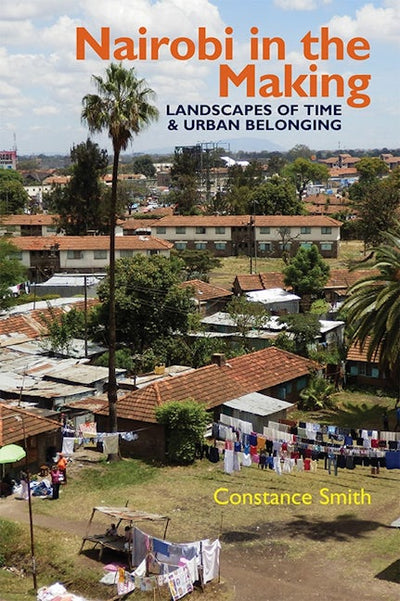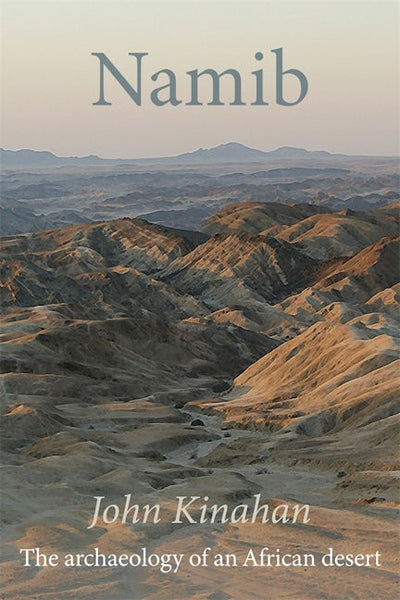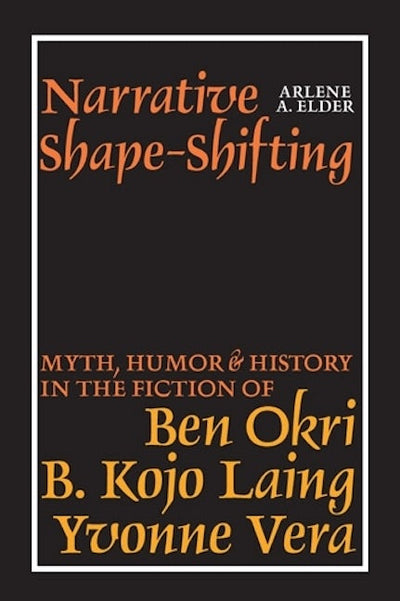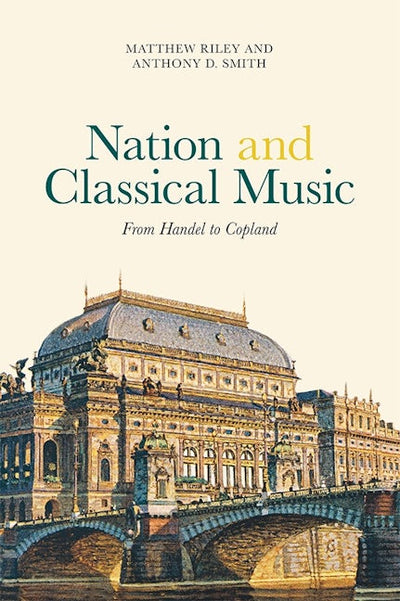-
Antiques & Collectibles
-
Architecture
-
Art
-
Bibles
-
Biography & Autobiography
-
Body, Mind & Spirit
-
Business & Economics
-
Comics & Graphic Novels
-
Computers
-
Cooking
-
Crafts & Hobbies
-
Design
-
Education
-
Family & Relationship
-
Fiction
-
Foreign Language Study
-
Games & Activities
-
Gardening
-
Health & Fitness
-
History
-
House & Home
-
Humor
-
Juvenile Fiction
-
Juvenile Nonfiction
-
Language Arts & Disciplines
-
Law
-
Literary Collections
-
Literary Criticism
-
Mathematics
-
Medical
-
Miscellaneous
-
Music
-
Nature
-
Performing Arts
-
Pets
-
Philosophy
-
Photography
-
Poetry
-
Political Science
-
Psychology
-
Reference
-
Religion
-
Self-Help
-
Science
-
Social Science
-
Sports & Recreation
-
Study Aids
-
Technology & Engineering
-
Transportation
-
Travel
-
True Crime
-
Young Adult Fiction
-
Young Adult Nonfiction
-
Antiques & Collectibles
-
Architecture
-
Art
-
Bibles
-
Biography & Autobiography
-
Body, Mind & Spirit
-
Business & Economics
-
Comics & Graphic Novels
-
Computers
-
Cooking
-
Crafts & Hobbies
-
Design
-
Education
-
Family & Relationship
-
Fiction
-
Foreign Language Study
-
Games & Activities
-
Gardening
-
Health & Fitness
-
History
-
House & Home
-
Humor
-
Juvenile Fiction
-
Juvenile Nonfiction
-
Language Arts & Disciplines
-
Law
-
Literary Collections
-
Literary Criticism
-
Mathematics
-
Medical
-
Miscellaneous
-
Music
-
Nature
-
Performing Arts
-
Pets
-
Philosophy
-
Photography
-
Poetry
-
Political Science
-
Psychology
-
Reference
-
Religion
-
Self-Help
-
Science
-
Social Science
-
Sports & Recreation
-
Study Aids
-
Technology & Engineering
-
Transportation
-
Travel
-
True Crime
-
Young Adult Fiction
-
Young Adult Nonfiction
Museums and Biographies
Regular price $130.00 Save $-130.00Museums and biographies both tell the stories of lives. This innovative collection examines for the first time biography - of individuals, objects and institutions - in relationship to the museum, casting new light on the many facets of museum history and theory, from the lives of prominent curators, to the context of museums of biography and autobiography. Separate sections cover individual biography and museum history, problematising individual biographies, institutional biographies, object biographies, and museums as biographies/autobiographies.
These articles offer new ways of thinking about museums and museum history, exploring how biography in and of the museum enrichesmuseum stories by stressing the inter-related nature of lives of people, objects and institutions as part of a dense web of relationships. Through their widely ranging research, the contributors demonstrate the value of thinkingabout the stories told in and by museums, and the relationships which make up museums; and suggest new ways of undertaking and understanding museum biographies.
Dr Kate Hill is Principal Lecturer in History at the University of Lincoln.
Contributors: Jeffrey Abt, Felicity Bodenstein, Alison Booth, Stuart Burch, Lucie Carreau, Elizabeth Crooke, Steffi de Jong, Mark Elliott, Sophie Forgan, Mariana Françozo, Laura Gray, Kate Hill, Suzanne MacLeod, Wallis Miller, Belinda Nemec, Donald Preziosi, Helen Rees Leahy, Linda Sandino, Julie Sheldon, Alexandra Stara, Louise Tythacott, Chris Whitehead, Anne Whitelaw

Museums and Biographies
Regular price $36.95 Save $-36.95Museums and biographies both tell the stories of lives. This innovative collection examines for the first time biography - of individuals, objects and institutions - in relationship to the museum, casting new light on the many facets of museum history and theory, from the lives of prominent curators, to the context of museums of biography and autobiography. Separate sections cover individual biography and museum history, problematising individual biographies, institutional biographies, object biographies, and museums as biographies/autobiographies.
These articles offer new ways of thinking about museums and museum history, exploring how biography in and of the museum enrichesmuseum stories by stressing the inter-related nature of lives of people, objects and institutions as part of a dense web of relationships. Through their widely ranging research, the contributors demonstrate the value of thinkingabout the stories told in and by museums, and the relationships which make up museums; and suggest new ways of undertaking and understanding museum biographies.
Dr Kate Hill is Principal Lecturer in History at the University of Lincoln.
Contributors: Jeffrey Abt, Felicity Bodenstein, Alison Booth, Stuart Burch, Lucie Carreau, Elizabeth Crooke, Steffi de Jong, Mark Elliott, Sophie Forgan, Mariana Françozo, Laura Gray, Kate Hill, Suzanne MacLeod, Wallis Miller, Belinda Nemec, Donald Preziosi, Helen Rees Leahy, Linda Sandino, Julie Sheldon, Alexandra Stara, Louise Tythacott, Chris Whitehead, Anne Whitelaw

Museums in China
Regular price $120.00 Save $-120.00Museums in China have undergone tremendous transformations since they first appeared in the country in the late nineteenth century. Futuristic, state-of-the-art museums have today become symbols of China's global cultural, economic and technological prominence, and over the last two decades, the number of Chinese museums has increased at an unprecedented rate, with China set to become the country with the highest number of museums in the world. But why have museums become so important?
This book, based on extensive research in a number of the museums themselves, examines recent changes in their display methods, narratives, actors and architectural style. It also considers their representations of Chinese national identity, millenarian history and extraordinary cultural diversity. Through an analysis of the changes affecting not only what we observe through museums, but also the very medium of observation (i.e. museums themselves), this book provides a unique, original and timely exploration of the ongoing changes affecting Chinese society, and an evaluation of their consequences.
Dr Marzia Varutti is apost-doctoral fellow at the Centre for Museum Studies, Department of Culture Studies and Oriental Languages, University of Oslo.

Music and Ceremony at the Court of Charles V
Regular price $130.00 Save $-130.00The presentation of Charles V as universal monarch, defender of the faith, magnanimous peacemaker, and reborn Roman Emperor became the mission of artists, poets, and chroniclers, who shaped contemporary perceptions of him and engaged in his political promotion. Music was equally essential to the making of his image, as this book shows. It reconstructs musical life at his court, by examining the compositions which emanated from it, the ordinances prescribing its rituals and ceremonies, and his prestigious chapel, which reflected his power and influence.
A major contribution, offering new documentary material and bringing together the widely dispersed information on the music composed to mark the major events of Charles's life. It offers.a very useful insight into music as one of many elements that served to convey the notion of the emperor-monarch in the Renaissance. TESS KNIGHTON
Mary Ferer is Associate Professor at the College of Creative Arts, West Virginia University.

Music and Death
Regular price $130.00 Save $-130.00Music & Death investigates different musical engagements with death. Its eleven essays examine a broad range of genres, styles and periods of Western music from the Middle Ages until the present day. This volume brings a variety of methodological approaches to bear on a broad, but non-exhaustive, range of music. These include musical rituals and intercessions on behalf of the departed. Chapters also focus on musicians' reactions to death, their ways of engaging with grief, anger and acceptance, and the public's reaction to the death of musicians.
The genres covered include requiem settings, operas and ballets, arts songs, songs by Leonard Cohen and the B-52s, and instrumental music. There are also broader reflections regarding the psychological links between creative musical practice and the overcoming of grief, music's central role in shaping a specific lifestyle (of psychobillies) and the supposed universalism of Western art music (as exemplified by Brahms).
The volume adds many new facets to the area of death studies, highlighting different aspects of "musical thanatology". It will appeal to those interested in the intersections between western music and theology, as well as scholars of anthropology and cultural studies.
CONTRIBUTORS: Matt BaileyShea, Alexandra Buckle, Peter Edwards, Richard Elliott, Nicole Grimes, Mieko Kanno, Kimberly Kattari, Wolfgang Marx, Fred E. Maus, Jillian C. Rogers, UtaSailer and Miriam Wendling.

Music and Desire among the Austro-German Romantics
Regular price $120.00 Save $-120.00Scholars have for several decades been devoting increasing attention to aspects of sexuality and desire in the music of the Austro-German Romantics. Undertaking a close analysis of the sources, the four chapters of this book show how our assumptions about what those composers desired are often in fact contingent on what we, their commentators, have wanted them to desire over the course of reception history. Beethoven's Fidelio and Schubert's Winterreise tend to be regarded as a hymn to freedom, on the one hand, and an interior monologue of an alienated lover, on the other, though in neither case does such a view correspond to what the composer intended. In contrast, Richard Wagner dismissed his own opera The Ban on Love as a youthful indiscretion extolling the "free love" of the Young German movement; but he was reinterpreting an early work to align it with his later aesthetic.
The final chapter examines the chronology of the friendship of Robert and Clara Schumann and Johannes Brahms in order to discern the likely truths about their triangular relationship before and after Robert Schumann's incarceration in a mental asylum. By adhering to the sources and placing them in the social, linguistic, and geographical contexts of their time, author Chris Walton grants all these protagonists a greater agency of desire than has hitherto been the case.

Music and Education (1848)
Regular price $36.95 Save $-36.95
Music and Faith
Regular price $49.95 Save $-49.95This book explores examples of how the Christian story is still expressed in music and how it is received by those who experience that art form, whether in church or not. Through conversations with a variety of writers, artists, scientists, historians, atheists, church laity and clergy, the term post-secular emerges as an accurate description of the relationship between faith, religion, spirituality, agnosticism and atheism in the west today. In this context, faith does not just mean belief; as the book demonstrates, the temporal, linear, relational and communal process of experiencing faith is closely related to music.
Music and Faith is centred on those who, by-and-large, are not professional musicians, philosophers or theologians, but who find that music and faith are bound up with each other and with their own lives. Very often, as the conversations reveal, the results of this 'binding' are transformative, whether it be in outpourings of artistic expression of another kind, or greater involvement with issues of social justice, or becoming ordained to serve within the Church. Even those who do not have a Christianfaith find that sacred music has a transformative effect on the mind and the body and even, to use a word deliberately employed by Richard Dawkins, the 'soul'.
JONATHAN ARNOLD is Dean of Divinity and Fellow of MagdalenCollege, Oxford. Before being ordained, he was a professional singer and made numerous recordings with The Sixteen, Polyphony, the Gabrielli Consort and The Tallis Scholars, among others. He has previously published Sacred Music in Secular Society (2014), The Great Humanists: An Introduction (2011) and John Colet of St. Paul's: Humanism and Reform in Pre-Reformation England (2007).

Music and German Literature
Regular price $90.00 Save $-90.00
Music and Instruments of the Elizabethan Age
Regular price $65.00 Save $-65.00The reign of Elizabeth I (1558-1603) has often been regarded as the Golden Age of English music. Many works of high quality, both vocal and instrumental, were composed and performed by native and immigrant musicians, while balladry and minstrelsy flourished in hall, street and alehouse.
No single source of the sixteenth century presents this rich musical culture more vividly than the inlaid surface of the Eglantine Table. This astonishing piece of furniture was made in the late 1560s for the family of Elizabeth or 'Bess' of Hardwick, Countess of Shrewsbury (1527-1608). The upper surface bears a wealth of marquetry that depicts, amidst the briar roses and other plants, numerous Elizabethan musical instruments in exquisite detail together with open books or scrolls of music with legible notation. Given that depictions of musical instruments and musical sources are rare in all artistic media of the Elizabethan period, the Eglantine Table is a very important resource for understanding the musical life of the age and its connection to aspects of culture now treated separately in disciplines such as art history, social and political history or the study of material culture.
This volume assembles a group of leading scholars in the history of instruments and associated fields to ground future research upon the most expert assessment of the depicted instruments, the music and the decorative imagery that is currently attainable. A final section of the book takes a broad view, placing the Table and the musical components of its decoration in relation to the full range of Elizabethan musical life.

Music and Instruments of the Middle Ages
Regular price $190.00 Save $-190.00Christopher Page is one of the most influential and distinguished scholars and performers of medieval music. His first book, Voices and Instruments of the Middle Ages (1987), marked the beginning of what might be called the"Page turn" in the study and performance of medieval music. His many subsequent publications, radio broadcasting (notably the series Spirit of the Age) and performances and recordings with his ensemble Gothic Voices changed the perception of and thinking about music from before about 1400 and forged new ways of communicating its essence to scholars as well as its subtle beauty to wider audiences.
The essays presented here in his honour reflectthe broad range of subject-matter, from the earliest polyphony to the conductus and motet of the thirteenth and fourteenth centuries, the troubadour and trouvère repertories, song and dance, church music, medieval music theory, improvisation techniques, historiography of medieval music, musical iconography, instrumental music, performance practice and performing, that has characterised Page's major contribution to our knowledge of music of the Middle Ages.

Music and Literature in German Romanticism
Regular price $130.00 Save $-130.00The interrelationship between music and literature reached its zenith during the Romantic era, and nowhere was this relationship more pronounced than in Germany. Many representatives of literary and philosophical German Romanticism held music to be the highest and most expressive, quintessentially Romantic art form, able to convey what cannot be expressed in words: the ineffable and metaphysical. The influence was reciprocal, with literature providing a rich source of inspiration for German composers of both instrumental and vocal music, giving rise to a wealth of new forms and styles. The essays in this volume are selected from papers presented at an international, interdisciplinary conference held at University College Dublin in December 2000, and include contributions from Germanists, musicologists, comparatists, and performance artists. This interdisciplinarity makes for informed and complementary approaches and arguments. The essays cover not only the "Romantic" nineteenth century (commencing with the early Romanticism of the Jena circle), but also look ahead to the legacy, reception, and continuation of German Romanticism in the modern and postmodern ages. Alongside new readings of familiar and established writers and composers such as Goethe, Hoffmann, Wagner, and Schubert, a case is made for other figures such as Wackenroder, Novalis, Schlegel, Schumann, Brahms, Liszt, and Berlioz, as well as less-known figures such as Ritter, Schneider, and Termen, and for a reconsideration of questions of categorization. The essays will appeal to readers with a wide variety of academic, musical, and literary interests.
Siobhán Donovan is a Lecturer in the Department of German at University College Dublin. Robin Elliott is Jean A. Chalmers Chair in Canadian Music at the University of Toronto.

Music and Meaning in Old Hispanic Lenten Chants
Regular price $170.00 Save $-170.00Medieval Iberian liturgical practice was independent of the Roman liturgy. As such, its sources preserve an unfamiliar and fascinating devotional journey through the liturgical year. However, although Old Hispanic liturgical chanthas long been considered one of the most important medieval chant traditions, what musical notation to survive shows only where the melodies rise and fall, not precise intervals or pitches. This lack of pitch-readable notation has prevented scholars from fully engaging with the surviving sources - a gap which this book aims to fill, via a new methodology for analysing the melodies and the relationship between melody and text.
Focussing on three genres of chant sung during the Old Hispanic Lent (the threni, psalmi, and Easter Vigil canticles), the book takes a holistic view of the texts and melodies, setting them in the context of their liturgical and intellectual surroundings, and, for the Easter Vigil, exploring the relationship between different Old Hispanic traditions and other western liturgies. It concludes that the theologically purposeful text selections combine with carefully shaped melodies to guide the devotional practice of their hearers.
Emma Hornby is a Reader in Music , University of Bristol; Rebecca Maloy is Associate Professor of Music, University of Colorado at Boulder.

Music and Modernity in Enlightenment Spain
Regular price $130.00 Save $-130.00Histories of modern Europe often present late eighteenth-century Spain as a backward place struggling to keep pace with modernity. During the reign of Charles III (1759-1788), Spain pushed for economic and cultural modernization, but encountered resistance from members of the public and the elite alike. They viewed the modern as a passing fad that would, in time, show its fragility, and believed Spain would withstand the collapse thanks to its firm grounding in the pillars of monarchy, religion, and traditional forms of knowledge. One source of this solid foundation was the long-established musical knowledge based on the rules of counterpoint. In contrast, modernizers argued that Spain could be true to its essence, yet simultaneously modern and cosmopolitan: they favoured cosmopolitan genres, such as Italian opera, and artistic expression over counterpoint rules. At times this led to more creative uses of music, such as reinterpreting pastoral and sentimental topics to accommodate reformist political trends.
Music was considered crucial to the integrity of the Spanish nation by both sides. Whether and how Spain became modern would in many ways be defined and reinforced by the kinds of music that Spaniards composed and witnessed on stage. Through the study of press debates, opera reception, and musical theatre productions, this book shows how music intersected with wider cultural affairs, such as philosophy and criticism, medicine and the human body, civilization, Bourbon policy and sentimentality. Music and Modernity in Enlightenment Spain for the first time connects music and the modern in eighteenth-century Spain within the context of Enlightenment thought.

Music and Musical Composition at the American Academy in Rome
Regular price $130.00 Save $-130.00The American Academy in Rome launched its Rome Prize in Musical Composition in 1921, a time in the United States of rapidly changing ideas about national identity, musical values, and the significance of international artistic exchange. Music and Musical Composition at the American Academy in Rome tells the story of this prestigious fellowship. Combining cultural analysis with historical and personal accounts of a century of musical life at the American Academy in Rome, the book offers new perspectives on a wide range of critical topics: patronage and urban culture, institutions and professional networks, musical aesthetics, American cultural diplomacy, and the maturation ofa concert-music repertory in the United States during the twentieth century.
Contributors: Martin Brody, Elliott Carter, John Harbison, Christina Huemer, Carol J. Oja, Andrea Olmstead, Vivian Perlis, Judith Tick, Richard Trythall
Martin Brody is the Catherine Mills Davis Professor of Music at Wellesley College, and served as the Andrew Heiskell Arts Director at the American Academy in Rome from 2007 to 2010.

Music and Musicians in the Escorial Liturgy under the Habsburgs, 1563-1700
Regular price $170.00 Save $-170.00Philip II of Spain founded the great Spanish monastery and royal palace of El Escorial in 1563, promoting within it a musical foundation whose dual function as royal chapel and monastery in the service of a Counter Reformation monarch was unique; this volume explores the performance and composition of liturgical music there from its beginnings to the death of Charles II in 1700. It traces the ways in which music styles and practices responded to the the changing functions of the institution, challenging notions about Spanish musical patronage, scrutinising musical manuscripts, uncovering the biographical details of hundreds of musicians, and examining musical practices.
Michael Noone is Professor of Musicology at the University of Hong Kong.

Music and Religion in the Writings of Ian McEwan
Regular price $120.00 Save $-120.00The majority of characters in Ian McEwan's novels are educated members of the middle class, but without any great private financial means and certainly no great affluence. Despite different occupations, whether scientist (Solar), musician (On Chesil Beach, Amsterdam) or surgeon (Saturday), they are faced with moral, ethical, religious and personal dilemmas that bear resonance to a contemporary audience.
Classical music is present throughout McEwan's writings (including his recent Lessons, 2022), mostly not as an accompanying theme but as a necessary part of life's pleasures and for some, essential needs. The combination of music and the unforgettable narrative moments create a unique space for McEwan to translate his views on the world. The value of music, not least as a complementary presence to silence, is portrayed not just as the source of comfort but as a known presence that is dependable to an individual on a near spiritual level. Within his writings there is also a clear understanding of the role of the Church of England as a societal, cultural and established presence within British society. In the literary descriptions of McEwan and other authors this often extends beyond the immediate theological and ecclesiastical concerns of the day. McEwan's writings demonstrate a perceptive knowledge of the nuances of this highly specific cultural dynamic.
McEwan's ability to discern sentiments that easily resonate with musicians place his contribution to the field of music and literature studies in a singular position among living writers discussing classical music in Britain. This book provokes questions for those who encounter these areas for the first time in McEwan's writings, and it offers a place of sustained enquiry for those who have experienced these fields first-hand, whether as listeners, performers, congregants, audience members or scholars across literary, musical or ecclesiastical fields. Iain Quinn's book will be of interest to scholars and students of contemporary British literature, as well as those interested in words and music studies more generally.

Music and Soviet Power, 1917-1932
Regular price $49.95 Save $-49.95The October Revolution of 1917 tore the fabric of Russian musical life: institutions collapsed, and leading composers emigrated or fell into silence. But in 1932, at the outset of the 'socialist realist' period, a new Stalinist music culture was emerging. Between these two dates lies a turbulent period of change which this book charts year by year. It sheds light on the vicious power struggles and ideological wars, the birth of new aesthetic credos, and the gradual increase of Party and state control over music, in the opera houses, the concert halls, the workers' clubs, and on the streets.
The book not only provides a detailed and nuanced depiction of the early Soviet musical landscape, but brings it to life by giving voice to the leading actors and commentators of the day. The vibrant public discourse on music is presented through a selection of press articles, reviews and manifestos, all suppliedwith ample commentary. These myriad sources offer a new context for our understanding of Shostakovich, Prokofiev and Myaskovsky, while also showing how Western music was received in the USSR. This, however, is only half the story.The other half emerges from the private dimension of this cultural upheaval, traced through the letters, diaries and memoirs left by composers and other major players in the music world. These materials address the beliefs, motivations and actions of the Russian musical intelligentsia during the painful period of their adjustment to the changing demands of the new state.
While following the twists and turns of official policies on music, the authors also offer their own explanations for the outcomes. The book offers unprecedented access to primary sources that have been unavailable in English, or which lay unknown on archival shelves. Music and Soviet Power offers cultural history told through documents - both colourful and representative - with an extensive commentary and annotation throughout.
MARINA FROLOVA-WALKER is Professor in Music History at the University of Cambridge anda Fellow of Clare College, Cambridge.
JONATHAN WALKER, who has a PhD in Musicology, is a freelance writer, teacher and pianist.

Music and Soviet Power, 1917-1932
Regular price $49.95 Save $-49.95The October Revolution of 1917 tore the fabric of Russian musical life: institutions collapsed, and leading composers emigrated or fell into silence. But in 1932, at the outset of the "socialist realist" period, a new Stalinist music culture was emerging. Between these two dates lies a turbulent period of change which this book charts year by year. It sheds light on the vicious power struggles and ideological wars, the birth of new aesthetic credos, and the gradual increase of Party and state control over music, in the opera houses, the concert halls, the workers' clubs, and on the streets.
The book not only provides a detailed and nuanced depiction of the early Soviet musical landscape, but brings it to life by giving voice to the leading actors and commentators of the day. The vibrant public discourse on music is presented through a selection of press articles, reviews and manifestos, all suppliedwith ample commentary. These myriad sources offer a new context for our understanding of Shostakovich, Prokofiev and Myaskovsky, while also showing how Western music was received in the USSR. This, however, is only half the story.The other half emerges from the private dimension of this cultural upheaval, traced through the letters, diaries and memoirs left by composers and other major players in the music world. These materials address the beliefs, motivations and actions of the Russian musical intelligentsia during the painful period of their adjustment to the changing demands of the new state.
While following the twists and turns of official policies on music, the authors also offer their own explanations for the outcomes. The book offers unprecedented access to primary sources that have been unavailable in English, or which lay unknown on archival shelves. Music and Soviet Power offers cultural history told through documents - both colourful and representative - with an extensive commentary and annotation throughout.
MARINA FROLOVA-WALKER is Reader in Music History at the University of Cambridge and Fellow of Clare College, Cambridge; JONATHAN WALKER, who has a PhD in Musicology, is a freelance writer, teacher and pianist.

Music and Time
Regular price $120.00 Save $-120.00For the experimental psychologist, the experience of time during music listening or performance is something that may be studied empirically. For philosophers, fundamental questions of time continue to be the subject of ongoing debate in philosophy: is time linear? What are past, present and future? What is duration and what makes a perceptual present, or moment? For the performer, musical time can exist as a subjective vehicle of expression. Although any of the three could be chosen as a starting point, the order presented in the text's structure offers a journey from empiricism to application, via contemplation.
This volume deals with the complex relationship between music and time. It presents a staunchly interdisciplinary perspective defined by the terms Psychology, Philosophy and Practice. The text is divided into sections concerning "experience", "enactment" and "meaning", as points of intersection between the three primary methodologies of the title. As such, this is a book for the scholar, the student of music, and the interested reader. For the scholar, it offers new interconnections and comparisons. For the student, its pluralistic approach presents the most comprehensive overview available to date regarding the topic. For the interested reader, the volume offers answers to questions which concern us as listeners and audiences at concerts, gigs, and festivals.

Music and Ultra-Modernism in France: A Fragile Consensus, 1913-1939
Regular price $60.00 Save $-60.00Music and Ultra-Modernism in France examines the priorities of three generational groupings: the pre-war Société Musicale Indépendente of Ravel and his circle, Les Six in the 1920s and Jeune France in 1936. Exploring the ideas of consensus, resistance and rupture, the book contributes an important and nuanced reflection to the current debate on modernism in music. It considers the roles composers, critics and biographers played in shaping debates about contemporary music, showing how composers including Ravel, Poulenc, Milhaud, Jolivet and Messiaen and critics such as Paul Landormy, André Coeuroy and Roland-Manuel often worked in partnership to bring their ideas to a publicforum. It also expands the notion of 'interwar' through the essential inclusion of World War I and the years before, reconfiguring the narrative for that period.
This book challenges some of the stereotypes that characterisethe period, in particular, neo-classicism and the dominance of secularism. It shows how Stravinsky worked closely with Ravel, Satie and Poulenc and invited audiences and critics to rethink what it meant to be modern. The interwaryears were also marked by commemoration and loss. Debussy's wartime death in 1918 stimulated competing efforts (by Emile Vuillermoz, Léon Vallas and Henry Prunières) to shape his legacy. They were motivated by nostalgia for a lostand glorious generation and a commitment to building a legacy of French achievement. Music and Ultra-Modernism in France argues for the vitality of French music in the period 1913-39 and challenges the received view that the period and its musical culture lacked dynamism, innovation or serious musical debate.
BARBARA L. KELLY is Professor of Music at Keele University.

Music as Social and Cultural Practice
Regular price $190.00 Save $-190.00The linking theme of the essays collected here is the intersection of musical work with social and cultural practice. Inspired by Professor Strohm's ideas, as is fitting in a volume in his honour, leading scholars in the field explore diverse conceptualizations of the "work" within the contexts of a specific repertory, over four main sections. Music in Theory and Practice studies the link between treatises and musical practice, and analyses how historicalwritings can reveal period views on the "work" in music before 1800. Art and Social Process: Music in Court and Urban Societies looks at the social and cultural practices informing composition from the late Renaissance until the mid-eighteenth century, and interrogates current notions of canon formation and the exchange between local and foreign traditions. Creating an Opera Industry focuses on how genre and artistic autonomy were defined in operas from diverse eras and countries, explaining the role of literature and politics in this process. Finally, The Crisis of Modernity treats nineteenth-century music, offering new models for "work" and "context" to challenge reigning theories of the meaning of these terms.
CONTRIBUTORS: AMNON SHILOAH, ANNA MARIA BUSSE BERGER, MARGARET BENT, EDWARD WICKHAM, BONNIE J. BLACKBURN, DAVID BRYANT, ELENA QUARANTA, OWEN REES, ALINA ZORAWSKA-WITKOWSKA, ELLEN T. HARRIS, CHRISTOPH WOLFF, NORBERT DUBOWY, MICHAEL TALBOT, MELANIA BUCCIARELLI, FRANCESCA MENCHELLI-BUTTINI, BERTA JONCUS, MICHEL NOIRAY, MICHAEL FEND, EMANUELE SENICI, FEDERICO CELESTINI, PAMELA POTTER, GIOVANNI MORELLI, JANET SMITH

Music at German Courts, 1715-1760
Regular price $59.95 Save $-59.95What was musical life at German courts really like during the eighteenth century? Were musical ensembles as diverse as the Holy Roman Empire's kaleidoscopic political landscape? Through a series of individual case studies contributed by leading scholars from Germany, Poland, the United States, Canada, and Australia, this book investigates the realities of musical life at fifteen German courts of varied size (ranging from kingdoms to principalities), religious denomination, and geographical location. Significant shifts that occurred in the artistic priorities of each court are presented through a series of "snapshots"- in effect "core sample" years - which highlight both individualand shared patterns of development and decline. What emerges from the wealth of primary source material examined in this volume is an in-depth picture of music-making within the daily life of individual courts, featuring a cast ofmusic directors, instrumentalists, and vocalists, together with numerous support staff drawn from across Europe. Music at German Courts serves to illustrate the extraordinary diversity of eighteenth-century German court music establishments without losing sight of what these Kapellen had in common.
SAMANTHA OWENS is Associate Professor in Musicology at the University of Queensland, Brisbane, Australia. BARBARA M. REUL is Associate Professor of Musicology at Luther College, University of Regina, Canada. JANICE B. STOCKIGT is a Principal Fellow of the University of Melbourne, Australia.
Contributors: DIETER KIRSCH, URSULA KRAMER, MICHAEL MAUL, MARYOLESKIEWICZ, SAMANTHA OWENS, RASHID-S. PEGAH, BÄRBEL PELKER, BARBARA M. REUL, WOLFGANG RUF, BERT SIEGMUND, JANICE B. STOCKIGT, MICHAEL TALBOT, RÜDIGER THOMSEN-FÜRST, ALINA ZORAWSKA-WITKOWSKA, STEVEN ZOHN

Music at German Courts, 1715-1760
Regular price $190.00 Save $-190.00What was musical life at German courts really like during the eighteenth century? Were musical ensembles as diverse as the Holy Roman Empire's kaleidoscopic political landscape? Through a series of individual case studies contributed by leading scholars from Germany, Poland, the United States, Canada, and Australia, this book investigates the realities of musical life at fifteen German courts of varied size (ranging from kingdoms to principalities), religious denomination, and geographical location. Significant shifts that occurred in the artistic priorities of each court are presented through a series of "snapshots"- in effect "core sample" years - which highlight both individualand shared patterns of development and decline.
What emerges from the wealth of primary source material examined in this volume is an in-depth picture of music-making within the daily life of individual courts, featuring acast of music directors, instrumentalists, and vocalists, together with numerous support staff drawn from across Europe. Music at German Courts serves to illustrate the extraordinary diversity of eighteenth-century German court music establishments without losing sight of what these Kapellen had in common.
SAMANTHA OWENS is Senior Lecturer in Musicology at the University of Queensland, Brisbane, Australia. BARBARA M. REUL is Associate Professor of Musicology at Luther College, University of Regina, Canada. JANICE B. STOCKIGT is a Principal Fellow of the University of Melbourne, Australia.
Contributors: DIETER KIRSCH, URSULA KRAMER, MICHAEL MAUL, MARY OLESKIEWICZ, SAMANTHA OWENS, RASHID-S. PEGAH, BÄRBEL PELKER, BARBARA M. REUL, WOLFGANG RUF, BERT SIEGMUND, JANICE B. STOCKIGT, MICHAEL TALBOT, RÜDIGER THOMSEN-FÜRST, ALINA ZORAWSKA-WITKOWSKA, STEVEN ZOHN

Music behind Barbed Wire
Regular price $39.95 Save $-39.95The Austrian composer Hans Gál (1890-1987) was one of many Jewish refugees who fled to Britain from Hitler's Third Reich only to find themselves interned in prison camps in Britain as 'enemy aliens' - the result of Churchill's panic decision to 'collar the lot'. Gál thus spent five months over the summer of 1940 in internment camps - first in Donaldson's Hospital in Edinburgh, then at Huyton, near Liverpool, and finally in the Central Promenade Camp on theIsle of Man. Many of Gál's fellow internees went on, like Gál himself, to become shaping forces in the intellectual life of Britain - but in captivity this colourful parade of characters had to put up with bureaucratic inertia and the indifference of their captors to their undeserved fate. The diary Gál kept during his captivity vividly describes the difficulties the internees had to overcome to live as normal a life as possible. Gál's contribution, of course, was music, and the CD with this book presents first recordings of the Huyton Suite he wrote for two violins and flute (the only instruments available to him), the satirical review What a Life! composed on the Isle of Man and the piano suite he drew from it. Introductory chapters by Gál's daughter and by Richard Dove present a biographical survey of Gál's life and career and an examination of British internment policy; the Foreword is bythe distinguished economist Sir Alan Peacock, who studied composition with Gál. Together they throw light on one of the more shameful British responses to the threat of Nazi invasion.

Music Criticism in France, 1918-1939
Regular price $170.00 Save $-170.00Music Criticism in France examines the aesthetic battles that animated and informed French musical criticism during the interwar period (1918-1939). Drawing upon a rich corpus of critical writings and archival documents, the book uncovers some of the public debates surrounding classical music in the immediate aftermath of the Great War until the eve of World War II. As such, it provides new insights into the priorities, values and challenges that affected the musical milieu of this war-bound generation.
This collection of essays brings together scholars from different areas of musicology and related humanities disciplines; it also draws on different anglophone and francophone intellectual traditions. As well as considering the reception of individual works, the contributors examine key individuals, composer-critic pairings, the composer as critic and technician, the role of influential journals, and music criticism as a pedagogical tool for concert-going and radio audiences.
Focusing on the themes of authority, advocacy and legacy, it shows the contribution of principal critics such as Vuillermoz, Vallas, Prunières, Schloezer and Koechlin to shaping our understanding of music in the first half of the twentieth century in France. We see how criticism contributes to national and transnational preoccupations and agendas, which were of considerable importance throughout the interwar period and continue to have relevance today.
BARBARA L. KELLY is Director of Research and Professor of Musicology at the Royal Northern College of Music, Manchester. CHRISTOPHER MOORE is Associate Professor of Musicology at the University of Ottawa. Contributors: PHILIPPE CATHÉ, MICHEL DUCHESNEAU, KIMBERLY FRANCIS, JACINTHE HARBEC, BARBARA L. KELLY, PASCAL LÉCROART, CHRISTOPHER MOORE, RACHEL MOORE, JANN PASLER, CAROLINE RAE, DANICK TROTTIER, MARIANNE WHEELDON

Music Explained to the World (1844)
Regular price $36.95 Save $-36.95While teaching at the Conservatoire Nationale de Musique in Paris Fétis extended the student curriculum by lecturing on wider musical topics. He also produced a music textbook for the general public at this time with the title Lamusique mise à la portée de tout le monde (1830). The book enjoyed a very wide circulation, was translated into most European languages and became the first influential treatise on "musical appreciation" in the wider sense of theterm. The first English version, enlarged by ten per cent, of this important book is reproduced here.

Music for St Cecilia's Day: From Purcell to Handel
Regular price $170.00 Save $-170.00In 1683 English court musicians and the Musical Society of London joined forces to initiate annual observations of St Cecilia's Day (22 November), celebrating the occasion with a feast and the performance of specially composed musical odes. The most prominent composers and poets of the age wrote for these occasions, including Henry Purcell, John Blow, John Dryden and William Congreve, and the best musicians of the city, primarily drawn from the court music, undertook the performances. After a decade of celebrations, a church service was added before the feast, and elaborate vocal and instrumental music was performed. At the same time, celebrations of St Cecilia's Day began to spread widely throughout the British Isles, where they were held by local music clubs, often with the support of cathedral musicians. Though the annual London celebrations came to an end after 1700 in the face of increasing competition from the city's busy musical and theatrical offerings, Cecilian poetry continued to inspire new musical settings in the eighteenth century, including works by Pepusch, Greene, Boyce and, most notably, Handel.
This book examines the social, cultural and religious significance of celebrations of St Cecilia's Day in the British Isles and explores the music and poetry that originated from them. The annual feasts of the Musical Society are analysed in detail, as is the role they played in the development of the ode. The book also considers how advances in musical culture in London were imitated in the provinces and provides a detailed discussion of the variety of Cecilian celebrations held at provincial centres throughout the British Isles.
BRYAN WHITE is Senior Lecturer in Music at the University of Leeds.

Music in 1853
Regular price $36.95 Save $-36.95No one composer is at the centre of this fascinating story, but a larger picture emerges of a shift in musical scenery, from the world of the innocent Romanticism of Berlioz and Schumann to the more potent musical politics of Wagner, and of his antidote (as many saw him), Brahms.
Why 1853? For many leading composers this year brought far-reaching changes to their lives: Brahms emerged from obscurity to celebrity, Schumann ceased to be an active composer, and both Berlioz and Wagner became active again after long silences. By limiting the perspective to a single year yet extending it to a group of musicians, their constant interconnections become the central motif: Brahms meets Berlioz and Liszt as well as Schumann; Liszt is a constant link in every chain; Joachim is close to all of them; Wagner is on everyone's mind. No one composer is at the centre of the story, but a network of musicians spreads across the map of Europe from London and Paris to Leipzig and Zurich.
Music in 1853 shows how musicians were now more closely connected than ever before, through the constant exchange of letters and the rapidly expanding railway network. The book links geography and day-to-day events to show how international the European musical scene had become. A larger picture emerges of a shift in musical scenery, from the world of the innocent Romanticism of Berlioz and Schumann to the more potent musical politics of Wagner and of his antidote (as many saw him) Brahms.
HUGH MACDONALD is Avis H. Blewett Professor Emeritus of Music at Washington University, St Louis. He has authored books on Skryabin and Berlioz and has previously published Beethoven's Century: Essays on Composers and Themes with Boydell/URP.

Music in Edwardian London
Regular price $80.00 Save $-80.00The dawning of a new century saw London emerge as a hub in a fast-developing global music industry, mirroring Britain's pivotal position between the continent, the Americas and the British Empire. It was a period of expansion, experiment and entrepreneurial energy. Rather than conservative and inward-looking, London was invigorated by new ideas, from pioneering musical comedy and revue to the modernist departures of Debussy and Stravinsky. Meanwhile, Elgar, Holst, Vaughan Williams, and a host of ambitious younger composers sought to reposition British music in a rapidly evolving soundscape.
Music was central to society at every level. Just as opulent theatres proliferated in the West End, concert life was revitalised by new symphony orchestras, by the Queen's Hall promenade concerts, and by Sunday concerts at the vast Albert Hall. Through innumerable band and gramophone concerts in the parks, music from Wagner to Irving Berlin became available as never before.
The book envisions a burgeoning urban culture through a series of snapshots - daily musical life in all its messy diversity. While tackling themes of cosmopolitanism and nationalism, high and low brows, centres and peripheries, it evokes contemporary voices and characterful individuals to illuminate the period. Challenging issues include the barriers faced by women and people of colour, and attitudes inhibiting the new generation of British composers - not to mention embedded imperialist ideologies reflecting London's precarious position at the centre of Empire.
Engagingly written, Simon McVeigh's groundbreaking book reveals the exhilarating transformation of music in Edwardian London, which laid the foundations for the century to come.

Music in Edwardian London
Regular price $36.95 Save $-36.95The dawning of a new century saw London emerge as a hub in a fast-developing global music industry, mirroring Britain's pivotal position between the continent, the Americas and the British Empire. It was a period of expansion, experiment and entrepreneurial energy. Rather than conservative and inward-looking, London was invigorated by new ideas, from pioneering musical comedy and revue to the modernist departures of Debussy and Stravinsky. Meanwhile, Elgar, Holst, Vaughan Williams, and a host of ambitious younger composers sought to reposition British music in a rapidly evolving soundscape.
Music was central to society at every level. Just as opulent theatres proliferated in the West End, concert life was revitalised by new symphony orchestras, by the Queen's Hall promenade concerts, and by Sunday concerts at the vast Albert Hall. Through innumerable band and gramophone concerts in the parks, music from Wagner to Irving Berlin became available as never before.
The book envisions a burgeoning urban culture through a series of snapshots - daily musical life in all its messy diversity. While tackling themes of cosmopolitanism and nationalism, high and low brows, centres and peripheries, it evokes contemporary voices and characterful individuals to illuminate the period. Challenging issues include the barriers faced by women and people of colour, and attitudes inhibiting the new generation of British composers - not to mention embedded imperialist ideologies reflecting London's precarious position at the centre of Empire.
Engagingly written, Simon McVeigh's groundbreaking book reveals the exhilarating transformation of music in Edwardian London, which laid the foundations for the century to come.

Music in Elizabethan Court Politics
Regular price $130.00 Save $-130.00Queen Elizabeth I (1558-1603) had a strong reputation for musicality; her court musicians, Thomas Tallis and William Byrd, even suggested that music was indispensable to the state. But what roles did music play in Elizabethan court politics? How did a musical image assist the Queen in projecting her royal authority? What influence did her private performances have on her courtships, diplomatic affairs, and relationships with courtiers? To what extent did Elizabeth control court music, or could others appropriate performances to enhance their own status and achieve their ambitions? Could noblemen, civic leaders, or even musicians take advantage of Elizabeth's love of music to present their complaints and petitions in song?
This book unravels the connotations surrounding Elizabeth's musical image and traces the political roles of music at the Elizabethan court. It scrutinizes the most intimate performances within the Privy Chamber, analyses the masques and plays performed in the palaces, and explores the grandest musical pageantry of tournaments, civic entries, and royal progresses. This reveals how music served as a valuable means for both the tactful influencing of policies and patronage, and the construction of political identities and relationships. In the late Tudor period music was simultaneously a tool of authority for the monarch and an instrumentof persuasion for the nobility.
KATHERINE BUTLER is a Senior Lecturer at Northumbria University, Newcastle.

Music in Elizabethan Court Politics
Regular price $36.95 Save $-36.95Queen Elizabeth I (1558-1603) had a strong reputation for musicality; her court musicians, Thomas Tallis and William Byrd, even suggested that music was indispensable to the state. But what roles did music play in Elizabethan court politics? How did a musical image assist the Queen in projecting her royal authority? What influence did her private performances have on her courtships, diplomatic affairs, and relationships with courtiers? To what extent did Elizabeth control court music, or could others appropriate performances to enhance their own status and achieve their ambitions? Could noblemen, civic leaders, or even musicians take advantage of Elizabeth's love of music to present their complaints and petitions in song?
This book unravels the connotations surrounding Elizabeth's musical image and traces the political roles of music at the Elizabethan court. It scrutinizes the most intimate performances within the Privy Chamber, analyses the masques and plays performed in the palaces, and explores the grandest musical pageantry of tournaments, civic entries, and royal progresses. This reveals how music served as a valuable means for both the tactful influencing of policies and patronage, and the construction of political identities and relationships. In the late Tudor period music was simultaneously a tool of authority for the monarch and an instrumentof persuasion for the nobility.
KATHERINE BUTLER is a Senior Lecturer at Northumbria University, Newcastle.

Music in Fifteenth-Century Bohemia
Regular price $130.00 Save $-130.00What was musical culture like in a country in fifteenth-century Central Europe where theologians tried to restore the values of the early church—including through musical practices‐only to be branded "heretical"?
Bohemian theologians tried to return to Christianity's "roots" by promoting frequent bread-and-wine communion for all (including children) and by encouraging lay participation in worship through translations into the vernacular. Unlike in many other European lands, monophonic chant and sacred songs were primarily used (though some advanced contemporary polyphonic settings circulated as well). These religious and musical developments formed part of the seedbed that would develop more fully during the European Reformation through the work of Martin Luther and others.
Music in Fifteenth-Century Bohemia: Between Reform and Identity Building contains essays on liturgy, song, and the influence of the Hussite movement. The book resists both nationalistically tinged narratives and the marginalization that has long resulted from an emphasis on the disparities between Czech and Western European musical traditions. One chapter demonstrates how a fifteenth-century song was employed in the revival of Czech culture in the nineteenth century.
Taken as a whole, the essays in this important collection illustrate the distinctive and often effective ways in which fifteenth-century Czech culture dealt with the dichotomy between religious reform and cultural identity.

Music in German Immigrant Theater
Regular price $95.00 Save $-95.00Nineteenth-century New York was, after Berlin and Vienna, the third largest German-populated city in the world. German-language musical plays and light operas held an important niche in the lives of German immigrants and their families. John Koegel's Music in German Immigrant Theater: New York City, 1840-1940, tells, for the first time, the engrossing story of these theater works, and the many musical numbers from them that became popular as separate songs.
Koegel documents performances, in German, of plays by Shakespeare and Goethe and operas by Offenbach, Verdi, and Johann Strauss. And he draws long-needed attention to German-American musical comedies written, beginning in the 1890s, by ethnic parodist Adolf Philipp. As their titles suggest -- Der Corner Grocer aus der Avenue A and Der Pawnbroker von der Eastside -- these musicals related directly to the daily experiences of theimmigrant population.
Music in German Immigrant Theater is enriched by copious photographs, sheet-music title pages, and musical examples, as well as numerous sets of song lyrics -- some uproarious, others touching --in German and in English translation. The accompanying CD includes recordings of many of the songs discussed in the book.
John Koegel is Professor of Musicology at California State University, Fullerton. WINNER - 2009 ForeWord Reviews' Book of the Year Award, music category. This book is also included in the AAUP's 2010 University Press Books Selected for Public and Secondary School Libraries along with a number of other URP books.

Music in Goethe's Faust
Regular price $170.00 Save $-170.00That Goethe's poetry has proved pivotal for the development of the nineteenth-century Lied has long been acknowledged. Less acknowledged is the seminal impact in musical realms of Goethe's Faust, a work which has attractedthe attention of composers since the late eighteenth century and played a vital role in the evolution of vocal, operatic and instrumental repertoire in the nineteenth century. While Goethe longed to have Faust set to musicand considered only Mozart and perhaps Meyerbeer as being equal to the task, by the end of his life he had abandoned hope that he would live to witness a musical setting of his text. Despite this, a floodtide of musical interpretations of Goethe's Faust came into existence from Beethoven to Schubert, Schumann to Wagner and Mahler, and Gounod to Berlioz; and a broad trajectory can be traced from Zelter's colourful description of the first setting ofGoethe's Faust to Alfred Schnittke's Faust opera (1993).
This book explores the musical origins of Goethe's Faust and the musical dimensions of its legacy. It uncovers the musical furore caused by Goethe's Faust and considers why his polemical text has resonated so strongly with composers. Bringing together leading musicologists and Germanists, the book addresses a wide range of issues including reception history, the performative challenges of writing music for Faust, the impact of the legend on composers' conceptual thinking, and the ways in which it has been used by composers to engage with other contemporary intellectual concepts. Constituting the richest examination to date of the musicality of language and form in Goethe's Faust and its musical rendering from the eighteenth to twenty-first centuries, the book will appeal to music, literary and Goethe scholars and students alike.
LORRAINE BYRNE BODLEY is Senior Lecturer in Musicology at Maynooth University and President of the Society for Musicology in Ireland.
Contributors: Mark Austin, Lorraine Byrne Bodley, NicholasBoyle, John Michael Cooper, Siobhán Donovan, Osman Durrani, Mark Fitzgerald, John Guthrie, Heather Hadlock, Julian Horton, Ursula Kramer, Waltraud Meierhofer, Eftychia Papanikolaou, David Robb, Christopher Ruth, Glenn Stanley, Martin Swales, J. M. Tudor

Music in North-East England, 1500-1800
Regular price $130.00 Save $-130.00Music in North-East England provides a wide-ranging exploration of musical life in the North-East of England during the early modern period. It contributes to a growing number of studies concerned with developing a nationwide account of British musical culture. By defining the North-East in its widest sense, the collection illuminates localised differences, distinct musical cultures in urban centres and rural locations, as well as region-wide networks, and situates regional musical life in broader national and international contexts. Music in North-East England affords new insights into aspects of musical life that have been the focus of previous studies of British musical life - such as public concerts - but also draws attention to aspects that have attracted less scholarly attention in histories of early modern British musical culture: the musical activities and tastes of non-elite consumers; interactions between art music and cheap print and popular song; music education beyond London and its satellite environs; the recovery of northern urban soundscapes; and the careers of professional musicians who have not previously been the focus of major published musicological studies.

Music in Print and Beyond
Regular price $130.00 Save $-130.00This collection of essays examines the diverse ways in which music and ideas about music have been disseminated in print and other media from the sixteenth century onward. Contributors look afresh at unfamiliar facets of the sixteenth-century book trade and the circulation of manuscript and printed music in the seventeenth to nineteenth centuries. They also analyze and critique new media forms, showing how a dizzying array of changing technologies has influenced what we hear, whom we hear, and how we hear. The repertoires considered include Western art music -- from medieval to contemporary -- as well as popular music and jazz.
Assembling contributions from experts in a wide range of fields, such as musicology, music theory, music history, and jazz and popular music studies, Music in Print and Beyond: Hildegard von Bingen to The Beatles sets new standards for the discussion of music's place in Western cultural life.
Contributors: Joseph Auner, Bonnie J. Blackburn, Gabriela Cruz, Bonnie Gordon, Ellen T. Harris, Lewis Lockwood, Paul S. Machlin, Roberta Montemorra Marvin, Honey Meconi, Craig A. Monson, Kate van Orden, Sousan L. Youens.
Roberta Montemorra Marvin teaches at the University of Iowa and is the author of Verdi the Student -- Verdi the Teacher (Istituto Nazionale di Studi Verdiani, 2010) and editor of The Cambridge Verdi Encyclopedia (Cambridge University Press, 2013).
Craig A. Monson is Professor of Musicology at Washington University (St Louis, Missouri) and is the author of Divas in the Convent: Nuns, Music, and Defiance in Seventeenth-Century Italy (University of Chicago Press, 2012).

Music in the Age of Chaucer
Regular price $29.99 Save $-29.99An absorbing survey... He is an expert on the French song of the period, consequently his wider view of Chaucer's musical background is well worth reading ... and he has much to say about Italy and England. The music is first-rate, and early music performers will find these songs a welcome addition to their repertory. EARLY MUSIC
Although Chaucer himself was never described as a musician, a number of his poems are based on French models which belongto a well-established musical tradition, and there are also many references to musical activities in his larger works. This is the starting point for Dr Wilkins's book, which explores both the wider question of the relationship between music and literature in the fourteenth century and the specific area of Chaucer `songs'. He surveys the musical and literary scene in France, Italy and Britain during Chaucer's lifetime, with special emphasis on composers such as Machaut and Landini, and on the differences in national styles. The performance of music and the instruments used are also fully explored.
The discussion of Chaucer's musical background is illustrated in the accompanyingsettings presented with words by Chaucer - ten ballades, three complaintes (or chants royaux), and one rondeau.
Fully illustrated with black and white photographs and musical examples.
New edition; first published 1979, 1980.

Music in the West Country
Regular price $60.00 Save $-60.00Music in the West Country is the first regional history of music in England. Ranging over seven hundred years, from the minstrels, waits, and cathedral choristers of the fourteenth century to the Bristol Sound of the late twentieth, the book explores the region's soundscape, from its gateway cities of Bristol and Salisbury in the east to the Isles of Scilly in the west, and examines music-making in tiny villages as well as conditions in important centres such as Bath, Exeter, Plymouth, and Bournemouth. What emerges is both a study of the typical - musical practices which would apply to any English region - and a portrait of the unique - features born of the region's physicalisolation and charm, among them the growth of festival culture, the mythologising of folk music, the late survival of parish psalmody and nonconformist carolling, and the unique continuance, today, of a professional resort orchestra, the Bournemouth Symphony Orchestra.
Banfield's vividly written and extremely readable history of music in the west country considers an array of subjects, firmly centred on people's stories: musical inventions and theidea of tradition, music as cultural capital, the economics of musical employment and the demographics of musicianship, musical networks, the relationship of the hinterlands to the metropolis, the influence of topography, the importance of institutions and events, and the question of how to measure value. A study in prosopography, it shows how people went about their lives with music and explores how things changed for them - or did not.
STEPHENBANFIELD is Emeritus Professor of Music at the University of Bristol.

Music in the Works of Broch, Mann, and Kafka
Regular price $90.00 Save $-90.00The German Romantic critic Friedrich Schlegel saw music as a paradigm of art, and wished to bring the qualities of music to literature. Schopenhauer saw in music a direct manifestation of the Will, and thus as the highest form ofart. This study examines the ironic influence of these and similar ideas of music's primacy among the arts on three of the most important modern writers of German: Hermann Broch, Thomas Mann, and Franz Kafka. Of the three, Broch takes Schlegel's idea furthest: His novel The Death of Vergil uses the constructive techniques and sonorities of music to extend the cognitive reach of his writing to the non- or supraverbal, and Hargraves traces similar concerns across Broch's career. Unlike Broch, Mann saw in musicality a peculiarly German access to the dark forces within the human psyche. Music is the `glass' through which the reader sees the development of the anti-hero Hans Castorp in Mann's Magic Mountain. In Doktor Faustus, on the other hand, the hero Leverkuhn conjures with demonic powers to create fictional music; his `strict style' is itself an allegory of the political realities of the 20th century. Kafka admitted that he had little appreciation for music, but two of his important shorter works. `Josefine the Singer,' and `Investigations of a Dog,' transform this `unmusicality' into an enigmatic essay on the uses and limits of art. Hargraves uncovers surprisingly parallel concerns among these three very different writers.
John Hargraves is assistant professor of German at Connecticut College, New London, Connecticut.

Music in Twentieth-Century Oxford: New Directions
Regular price $130.00 Save $-130.00Music has always played a central role in the life of Oxford, in both the city and university, through the great collegiate choral foundations, the many amateur choirs and instrumentalists, and the professional musicians regularly drawn to perform there. Oxford, with its collegiate system and centuries-long tradition of musical activity, presents a distinctive and multi-layered picture of the role of music in urban culture and university life.
The chapters in this book shed light on music's unique ability to link 'town and gown', as shown by the Oxford Bach Choir, the city's many churches, and the major choral foundations. The twentieth century saw the emergence of new musical initiatives and the book traces the development of these, including the University's Faculty of Music and the University Opera Club. Further, it explores music in the newly-founded women's colleges, contrasted with the musical society formed in 1930 at University College, an ancient men's college. The work of Oxford composers, including George Butterworth, Nicola Lefanu, Edmund Rubbra, and William Walton, as well as the composer for several 'Carry on' films, Bruce Montgomery, is surveyed. Two remarkable figures, Sir Hugh Allen and Sir Jack Westrup, recur throughout the book in a variety of contexts.
The volume is indispensable reading for scholars and students of musical life in twentieth-century Britain, as well as those interested generally in the history of Oxford's thriving cultural life.

Music in Vienna
Regular price $85.00 Save $-85.00The image of Vienna as a musical city is a familiar one. Vienna has long been associated with many of the most significant composers in Western music - from Haydn, Mozart, Beethoven and Schubert, through the Strauss family, Brahms, Bruckner and Wolf, to Mahler, Lehár, Schoenberg and Webern. Today, venerable institutions like the Vienna Philharmonic Orchestra, the Staatsoper and the Vienna Boys' Choir, together with the shared pride of residents and visitors in its musical inheritance, ensure that the image of a musical city is undimmed.
This book explores the history of music in Vienna, focussing on three different epochs, 1700, 1800 and 1900, an approach which allows the very different relationships between music and society that existed in each of these periods to be distinguished. Patronage, social function and audience are key considerations, set within wider political and cultural developments. The volume is populated by emperors, princes, performers, publishers and writers as well as composers, and deals with institutional and commercial characteristics alongside representative individual works. Music in Vienna focusses on the political and social role of music, broadening our understanding of the city as a musical capital. It will appeal to a wide readership, including music historians and political, cultural and social historians, as well as the interested general reader.
DAVID WYN JONES is Professor of Music at Cardiff University.

Music in Vienna
Regular price $36.95 Save $-36.95Vienna has long been associated with many of the most significant composers in Western music - from Haydn, Mozart, Beethoven and Schubert, through the Strauss family, Brahms, Bruckner and Wolf, to Mahler, Lehár, Schoenberg and Webern. Today, venerable institutions like the Vienna Philharmonic Orchestra, the Staatsoper and the Vienna Boys' Choir, together with the shared pride of residents and visitors in its musical inheritance, ensure that the image of a musical city is undimmed.
This book explores the history of music in Vienna, focussing on three different epochs, 1700, 1800 and 1900, an approach which allows the very different relationships between music and society that existed in each of these periods to be distinguished. Patronage, social function and audience are key considerations, set within wider political and cultural developments. The volume is populated by emperors, princes, performers, publishers and writers as well as composers, and deals with institutional and commercial characteristics alongside representative individual works. Music in Vienna focusses on the political and social role of music, broadening our understanding of the city as a musical capital. It will appeal to a wide readership, including music historians and political, cultural and social historians, as well as the interested general reader.
DAVID WYN JONES is Professor of Music at Cardiff University.

Music into Fiction
Regular price $75.00 Save $-75.00This book deals with three aspects that have been neglected in the burgeoning field of music and literature. The "First Movement" of the book considers writers from German Romanticism to the present who, like Robert Schumann, first saw themselves as writers before they turned to composition, or, like E. T. A. Hoffmann and Anthony Burgess, sought careers in music before becoming writers. It also considers the few operatic composers, such as Richard Wagner and Arnold Schoenberg, who wrote their own libretti. The "Second Movement" turns to literary works based specifically on musical compositions. This group includes, first and more generally, prose works whose author chose a specific musical form such as sonata or fugue as an organizational model. And second, it includes novels based structurally or thematically on specific compositions, such as Bach's Goldberg Variations. The "Finale" concludes with a unique case: efforts by modern composers to render musically the compositions described in detail by Thomas Mann in his novel Doktor Faustus. This book, which addresses itself to readers interested generally in music and literature and is written in a reader-friendly style, draws attention to unexplored dimensions of the music-literature relationship and to the sometimes unrecognized talents of certain writers and composers.
Theodore Ziolkowski is Professor Emeritus of German and Comparative Literature, Princeton University.

Music Speaks
Regular price $120.00 Save $-120.00From Daniel Albright, author of Musicking Shakespeare and Berlioz's Semi-Operas, comes a collection of essays on music and on dance, probing the problems of articulating the meaning[s] of music; the larger question of how music and language interact; how text-setting highlights certain areas of meter, theme, or ironic undertone, and leaves others in darkness; how a musical composition can behave as a critique of a previous composition; and how one might rehabilitate certain underappreciated or much-scorned figures, such as Meyerbeer, by showing that the very terms of invective used against them can be seen, from another angle, as an indication of what is exciting in their work.
Albright shows that music history has an aesthetic of its own, and how music history interacts with intellectual history (from Rousseau to Paul de Man). By abutting music against literature and painting, and by juxtaposing the musics of different centuries, Albright frames a particular work, isolating what is arresting and important in it.
The essays range widely, but they rarely stray far from opera, for the opera house is the venue where the performances speak the most intricate and significant language invented by our culture -- a language that speaks in music, words, pictures, and light.
Daniel Albright teaches courses in the English, ComparativeLiterature, and Music departments at Harvard University.

Music Theatre in Britain, 1960-1975
Regular price $75.00 Save $-75.00Based on Michael Hall's many interviews with leading British composers of the genre, this book looks at the heyday of the British Music Theatre in the 1960s and 70s, a period when the author as a BBC radio producer was actively involved with the contemporary music scene. Music Theatre - a composite of music, singing, dancing and speaking distinct from traditional opera and ballet - has its roots in works by Monteverdi, Schoenberg, Satie, Stravinsky, Weill,Hindemith and Eisler, but flourished anew in the 1960s, in America, Britain and Europe.
Hall's book presents an account of the context for the activity of Birtwistle, Goehr and Maxwell Davies; it uncovers details of little-known early works by other major figures such as Cardew and Tavener; and it recognises the highly distinctive contributions of composers whose works are less well known. Music Theatre in Britain also throws new light upon the reaction of British composers to the economic and social upheavals of 'the Sixties', offering a distinct and valuable contribution to our understanding of the relationship of the post-war musical avant-garde to social movementsand ideology. Music Theatre in Britain will be of interest to all those working in the field of late twentieth-century British music, to students of composition, and to composers, performers and producers of Music Theatre.
MICHAEL HALL, who died in August 2012, had a long career as a conductor, founder of Royal Northern Sinfonia, BBC producer and broadcaster, university lecturer and writer on music.

Music Theory and Mathematics
Regular price $130.00 Save $-130.00The essays in Music Theory and Mathematics: Chords, Collections, and Transformations define the state of mathematically oriented music theory at the beginning of the twenty-first century. The volume includes essays in diatonic set theory, transformation theory, and neo-Riemannian theory -- the newest and most exciting fields in music theory today.
The essays constitute a close-knit body of work -- a family in the sense of tracing their descentfrom a few key breakthroughs by John Clough, David Lewin, and Richard Cohn in the 1980s and 1990s. They are integrated by the ongoing dialogue they conduct with one another.
The editors are Jack Douthett, a mathematician and music theorist who collaborated extensively with Clough; Martha M. Hyde, a distinguished scholar of twentieth-century music; and Charles J. Smith, a specialist in tonal theory. The contributors are all prominent scholars, teaching at institutions such as Harvard, Yale, Indiana University, and the University at Buffalo. Six of them (Clampitt, Clough, Cohn, Douthett, Hook, and Smith) have received the Society for Music Theory's prestigious PublicationAward, and one (Hyde) has received the ASCAP Deems Taylor Award. The collection includes the last paper written by Clough before his death, as well as the last paper written by David Lewin, an important music theorist also recently deceased.
Contributors: David Clampitt, John Clough, Richard Cohn, Jack Douthett, Nora Engebretsen, Julian Hook, Martha Hyde, Timothy Johnson, Jon Kochavi, David Lewin, Charles J. Smith, and Stephen Soderberg.

Music Theory in Concept and Practice
Regular price $64.95 Save $-64.95This collection of nineteen essays, all by leaders in the field of music theory, reflects the rich diversity of topics and approaches currently being explored. The contributions fall within three principal areas of study that haveremained at the heart of the discipline. One is historical research, which includes efforts to trace the development of theoretical ideas and their philosophical bases. Representing this broad category are essays dealing with issues like Scriabin's mysticism, neoclassicism, modern aesthetics, and the development of the concept of pitch collection in twentieth-century theoretical writings. The second area embraces the theory and analysis of common-practicetonality and its associated repertoire (including chromatic and 'transitional' music). Within this category are several studies related directly to or derived from Schenkerian theory, covering repertoire from Bach through Schubert and Chopin to Gershwin. Complementing these articles are a study of a chromatic work by Liszt and an essay on Schoenberg's concept of tonality. The third broad category includes the large body of work associated with the theoryand analysis of post-tonal music. Representing this extensive area of inquiry are essays dealing with voice leading in atonal music and extending Allen Forte's theory of the set complex, and analytical studies dealing with works by Schoenberg and Webern. Adding to these contributions are articles that deal with works by composers less frequently discussed in the analytical literature, Milhaud and Peter Maxwell Davies, and an empirical study of aural cognition of atonal and tonal music.
These essays, all by colleagues, friends, and students of Allen Forte are intended as a celebrationof his enormous contribution to the discipline of music theory.
James Baker is Professor of Music at Brown University; David Beach is Dean of the Faculty of Music at the University of Toronto; Jonathan Bernard is Professor of Music at the University of Washington.

Music's Modern Muse
Regular price $34.95 Save $-34.95The American-born Winnaretta Singer (1865-1943) was a millionaire at the age of eighteen, due to her inheriting a substantial part of the Singer Sewing Machine fortune. Her 1893 marriage to Prince Edmond de Polignac, an amateur composer, brought her into contact with the most elite strata of French society. After Edmond's death in 1901, she used her fortune to benefit the arts, science, and letters. Her most significant contribution was in the musical domain: in addition to subsidizing individual artists (Boulanger, Haskil, Rubinstein, Horowitz) and organizations (the Ballets Russes, l'Opéra de Paris, l'Orchestre Symphonique de Paris), she made a lifelong project of commissioning new musical works from composers, many of them unknown and struggling, to be performed in her Paris salon. The list of works created as a result is long and extraordinary: Stravinsky's Renard, Satie's Socrate, Falla'sEl Retablo de Maese Pedro, and Poulenc's Two-Piano and Organ Concertos are among the best-known titles. In addition, her salon was a gathering place for luminaries of French culture such as Proust, Cocteau, Monet, Diaghilev, and Colette. Many of Proust's memorable evocations of salon culture were born during his attendance at concerts in the Polignac music room. Sylvia Kahan brings to life this eccentic and extravagant lover of the arts, whose influence on the 20th Century world of music and literature remains incalculable.

Music's Nordic Breakthrough
Regular price $130.00 Save $-130.00Following the end of the Cold War, a former East-West binary model of European identity has been replaced with a series of more complex and variegated patterns. Northern Europe is one such territory, and the idea of the 'North' more generally has come in for increased critical scrutiny. This volume reappraises the work of Sibelius, Nielsen and their contemporaries, but it also reassesses the wider implications of the 'Nordic Breakthrough' for fields such as the visual arts, theatre, literature and architecture.
Music's Nordic Breakthrough adopts an interdisciplinary methodology and expands the geographical reach of the 'Nordic zone' to include interactions with Russia, the Baltic states and Great Britain; a new understanding of the region emerges as an arena of artistic affinity, cutural exchange and shared preoccupations. At the same time, the book constitutes an attempt to re-map and recentre early twentieth-century European modernism through a distinctively Nordic lens. The thematic approach on display reveals the complex interaction of networks, individuals, ideologies and the transfer of ideas. The book will beof interest to musicologists working in late nineteenth- and early twentieth-century repertoires, as well as those more broadly interested in modernism in music and its neighbouring arts. The book also offers important reading forart historians, theatre scholars and literary critics.
CONTRIBUTORS: Charlotte Ashby, Leah Broad, Daniel M. Grimley, Louise Hardiman, Kevin Karnes, Pirjo Lyytikäinen, Tomi Mäkelä, Julia Mannherz, Arnulf Christian Mattes, Philip Ross Bullock, Kirsten Rutschmann, and Mikkel Zangenberg.

Music, Dance and Franco-Italian Cultural Exchange, c.1700
Regular price $170.00 Save $-170.00This study stems from discoveries in a trove of documents belonging to Charles-Henri de Lorraine, prince de Vaudémont, who served as governor of Milan under the Spanish crown from 1698 to 1706. These documents, together with a mass of other sources - letters, diaries, treatises, libretti, scores - offer a vivid new picture of musical life in Paris and Milan as well as exchanges between France and Italy. The book is both a patronage study and an examination of the contributions by - and the difficulties facing - musicians and dancers who worked across national and cultural boundaries.
Music, Dance, and Franco-Italian Cultural Exchange, c.1700 follows the careers of the prince and the French violinist and composer Michel Pignolet de Montéclair. In the context of a renewed fascination with Italian music in the 1690s, Montéclair made a name for himself in Paris as a pedagogue and composer who understood both national styles and blended them in a way that was successful on French terms. Vaudémont hired Montéclair to direct a French violin band and to compose dance music for a series of new operas that observers declared "the best in Italy" but are virtually unknown today. These productions involved collaborations among a mixed company of French and Italian musicians, dancers, composers, and librettists modeled on the practice of Turinese court operas. The book is an account of the contributions of these figures to the cultural life of Paris, Milan, and other northern Italian states, and to the creative mixing of musical styles, operatic conventions, and dance technique in France and Italy through the 1720s and beyond. The connections fostered by Vaudémont thus played a heretofore unrecognized early role in the development of 18th-century cosmopolitanism, and they attest to both the liveliness and the artistic importance of such exchanges in the era before the well-known travels of Handel, Telemann, and Vivaldi.

Music, Indigeneity, Digital Media
Regular price $50.00 Save $-50.00The essays in this volume offer rich and diverse perspectives on the encounter between Indigenous music and digital technologies. They explore how digital media -- whether on CD, VCD, the Internet, mobile technology, or in the studio -- have transformed and become part of the fabric of Indigenous cultural expression across the globe. Communication technologies have long been tools for nation building and imperial expansion, but these studies reveal how over recent decades digital media have become a creative and political resource for Indigenous peoples, often nurturing cultural revival, assisting activism, and complicating earlier hegemonic power structures. Bringing together thework of scholars and musicians across five continents, the volume addresses timely issues of transnationalism and sovereignty, production and consumption, archives and transmission, subjectivity and ownership, and virtuality and the posthuman.
Music, Indigeneity, Digital Media is essential reading for scholars working on topics in ethnomusicology, Indigeneity, and media studies while also offering useful resources for Indigenous musicians and activists. The volume provides new perspectives on Indigenous music, refreshes and extends debates about digital culture, and points to how digital media shape what it means to be Indigenous in the twenty-first century.
Contributors: Linda Barwick, Beverley Diamond, Thomas R. Hilder, Fiorella Montero-Diaz, John-Carlos Perea, Henry Stobart, Shzr Ee Tan, Russell Wallace
Thomas R. Hilder is postdoctoral fellow in musicology at the University of Bergen. Henry Stobart is reader in music at Royal Holloway, University of London. Shzr Ee Tan is senior lecturer at Royal Holloway, University of London.

Music, Liturgy, and Confraternity Devotions in Paris and Tournai, 1300-1550
Regular price $170.00 Save $-170.00Starting in the fourteenth century, northern France saw the rise of confraternities and other lay communities of men and women, organized around trades and religious devotions dedicated to specific patron saints. The composition of new plainchant for masses and offices in honor of saints thought to have healing powers occupied an important place in the devotional landscape of the region.
Sarah Ann Long's deeply researched new book highlights the decentralized nature of religious and spiritual authority from 1300-1550, which allowed confraternities to cultivate liturgical practices heavily influenced by popular devotional literature. It challenges pre-conceived notions of the power of the Catholic Church at that time, and the extent to which religious devotions were regulated and standardized. The resulting conclusion is that confraternity devotions occupied a liminal space that provided a certain amount of musical freedom. Examining musical culture at the intersection of the medieval and early modern eras, this work explores such subjects as manuscript production and early music printing; and it investigates not only plainchant, but a broad range of musical styles from the fourteenth through the sixteenth centuries. These include polyphonic embellishments of chant written by some of the most famous composers of the era, which were performed at the French, Burgundian, and Papal Courts.

Music, Medicine and Religion at the Ospedale di Santo Spirito in Rome
Regular price $130.00 Save $-130.00This book explores connections between the physical care of the sick based on the study of medicine, concepts of healing founded on religious thought, and the practice of music at the Ospedale di Santo Spirito (Hospital of the Holy Spirit) in Rome. The hospital was a unique institution that was regulated by the Roman Catholic Church but simultaneously reflected the significant shifts in scientific thought emerging during the period that coincided with post-Tridentine reforms in the church.
The volume discusses the hospital's foundation, architecture and links with the papacy. It also reflects on the then acceptable "ways of knowing" informed by religious concerns and medical traditions. The tripartite relationship between religion, medicine and music within the institution was complex. At times they existed side-by-side, at others they intersected. Drawing on extensive archival research such as financial records, decrees, records of apostolic visits and inventories as well as surviving musical sources (printed and manuscript), the book makes connections between intellectual beliefs about music and actual musical practices. It explores the early use of music as therapy and investigates the musical ideals and practices of the monastic regime which ran the hospital. In a wider sense, the book shows how music operated in the hospital's institutional, social and historical contexts, and how it underwent change over time in response to broader cultural and religious movements.

Music, Morality and Social Reform in Nineteenth-Century Britain
Regular price $120.00 Save $-120.00This book discusses the role of music in programmes of personal improvement and social reform in nineteenth-century Britain. The pursuit of morality through music was designed not just to improve personal and communal character but to affect social change and transformation. The book examines the musical education of children, women and men through a variety of literature published for various educational settings including mechanics' institutes. It also considers the role of music in narratives of social programs and community-building projects that sought to promote utility, well-being and freedom from the strictures of Christianity as the dominant moral and cultural force.
The first book to connect the threads between music, moral instruction and social reform across the educational life cycle in nineteenth-century Britain, it shows how these threads are found in unlikely places, such as games, manners books, economics treatises and short stories. It deftly illustrates the links between everyday life, popular culture and discourses of morality and social reform of the period.

Music, Myth and Story in Medieval and Early Modern Culture
Regular price $125.00 Save $-125.00Myths and stories offer a window onto medieval and early modern musical culture. Far from merely offering material for musical settings, authoritative tales from classical mythology, ancient history and the Bible were treated as foundations for musical knowledge. Such myths were cited in support of arguments about the uses, effects, morality and preferred styles of music in sources as diverse as theoretical treatises, defences or critiques of music, art, sermons, educational literature and books of moral conduct. Newly written literary stories too were believed capable of moral instruction and influence, and were a medium through which ideas about music could be both explored and transmitted. How authors interpreted and weaved together these traditional stories, or created their own, reveals much about changing attitudes across the period.
Looking beyond the well-known figure of Orpheus, this collection explores the myriad stories that shaped not only musical thought, but also its styles, techniques and practices. The essays show that music itself performed and created knowledge in ways parallel to myth, and worked in tandem with old and new tales to construct social, political and philosophical views. This relationship was not static, however; as the Enlightenment dawned, the once authoritative gods became comic characters and myth became a medium forridicule. Overall, the book provides a foundation for exploring myth and story throughout medieval and early modern culture, and facilitating further study into the Enlightenment and beyond.
KATHERINE BUTLER is a seniorlecturer in music at Northumbria University; SAMANTHA BASSLER is a musicologist of cultural studies, a teaching artist, and an adjunct professor in the New York metropolitan area.
Contributors: Jamie Apgar, Katie Bank, Samantha Bassler, Katherine Butler, Elina G. Hamilton, Sigrid Harris, Ljubica Ilic, Erica Levenson, John MacInnis, Patrick McMahon, Aurora Faye Martinez, Jacomien Prins, Tim Shephard, Jason Stoessel, Férdia J. Stone-Davis, Amanda Eubanks Winkler.

Music, Nature and Divine Knowledge in England, 1650-1750
Regular price $170.00 Save $-170.00What was the role of music in the early modern subject's sensory experience of divinity? While the English intellectuals Peter Sterry (1613-72), Richard Roach (1662-1730), William Stukeley (1687-1765) and David Hartley (1705-57), have not been remembered for their 'musicking', this book explores how the musical reflections of these individuals expressed alternative and often uncustomary conceptions of God, the world, and the human psyche. Music is always potentially present in their discourse, emerging as a crucial form of mediation between states: exoteric and esoteric, material and spiritual, outer and inner, public and private, rational and mystical.
Dixon shows how Sterry, Roach, Stukeley and Hartley's shared belief in truly universal salvation was articulated through a language of music, implying a feminising influence that set these male individuals apart from contemporaries who often strictly emphasised the rational-i.e. the supposedly masculine-aspects of religion. Musical discourse, instead, provided a link to a spiritual plane that brought these intellectuals closer to 'ultimate reality'. Theirs was a discourse firmly rooted in the real existence of contemporary musical practices, both in terms of the forms and styles implied in the writings under discussion and the physical circumstances in which these musical genres were created and performed.
Through exploring ways in which the idea of music was employed in written transmission of elite ideas, this book challenges conventional classifications of a seventeenth-century 'Scientific Revolution' and an eighteenth-century 'Enlightenment', defending an alternative narrative of continuity and change across a number of scholarly disciplines, from seventeenth-century English intellectual history and theology, to musicology and the social history of music.

Music, Pantomime and Freedom in Enlightenment France
Regular price $130.00 Save $-130.00This book explains the relationships between music, pantomime and freedom in pre-Revolutionary France. It argues that composers and performers recognized their agency when they attempted, from the 1730s through the end of the Old Regime, to revive a lost art called 'pantomime' for their compositions. In musical settings of pantomimes in French operas and instrumental works, leading composers of the time - Rameau, Rousseau, Gluck, and Salieri - used pantomime as a type of expressive dance and acting style that marked an aesthetic rupture between Louis XIV's absolutist governance and the Enlightenment ideals of free expression. In musical settings of pantomime, these composers cultivated various forms of freedom theorized in Enlightenment writings: artistic freedom for the composer; freedom as self-governance; interpretive freedom for spectators; freedom of action for performers; and freedom from dance convention.
Thus, pantomime was not only a dance genre; it also functioned as an expressive medium for top performers and invited spectators to draw their own interpretative conclusions. Placing the cultural phenomenon of pantomime in the intellectual context of the Enlightenment, the book explains how composers helped develop thinking and feeling subjects in pre-Revolutionary France.

Music, Politics and Religion in Early Seventeenth-Century Cambridge
Regular price $140.00 Save $-140.00The Peterhouse partbooks constitute a unique resource for studying two periods of English choral music. Their witness to musical trends at the time of the Henrician Reformation has attracted much attention since their assimilation into scholarly accounts of English music in the mid-nineteenth century. Less has been written, however, about what the collection can tell us about music on the eve of the English Civil War, in the period when the partbooks were brought together and when much of their music was composed. This volume considers the music of the partbooks as part of the broader cultural, intellectual, and material history of the 1630s. It breaks new ground in describing the institutional context for the creation of the partbooks and in providing an account of the materials used in them, as well as analysis of the scribal cultures from which they originated. For the first time, it properly situates the partbooks within the developing ecclesiology of the Church of England and investigates the influence of local and personal commitments on the liturgy and practice for which they were compiled.
Local and personal factors shaped the implementation of national political and religious change in the 1630s and this volume shows how these forces came together in short-lived and contentious innovation in cultural and intellectual life. Contributions consider the extent to which musical renewal formed part of a conscious programme of architectural, artistic, literary, and liturgical change whose purpose was to redirect the education and formation of future generations of priests and patrons within the Church of England. While exploring the mechanisms of change, they also consider the force of reaction to and dissatisfaction with novelty and the resulting turmoil, iconoclasm, and exile that transformed the careers of the protagonists in the story of the partbooks. Although particular in focus, the volume demonstrates how political, intellectual, and religious dispute infiltrated the lives of individuals and communities and generated conflicts that proved impossible to control. The story of the Peterhouse partbooks provides an unusually rich opportunity to review a critical period of British history through the prism provided by a remarkable example of musical and cultural survival.

Musical Amateurs as Artistic Citizens in Schubert’s Vienna
Regular price $120.00 Save $-120.00During Franz Schubert's lifetime in early nineteenth-century Vienna, amateurs and dilettantes were a vital part of the music scene, so much so that Eduard Hanslick considered it the high point of musical dilettantism in Vienna. Schubert himself participated extensively in this rich world of domestic music-making. Around 1800 terms such as "amateur" and "dilettante" had broader and more positive connotations than today, and "amateurs" could indeed often portray a high skill level. The book considers the amateurs' and dilettantes' identities and motivations for making music, and their various roles in the musical life of early nineteenth-century Vienna. It dives deeply into contexts, performance practices and spaces, as well as instruments that have so far been little explored. Musical Amateurs in Schubert's Vienna uncovers new key agents in early nineteenth-century Viennese musical life who have so far remained invisible.

Musical Analyses and Musical Exegesis
Regular price $190.00 Save $-190.00The field of musicology has in recent decades branched out to incorporate methods from a wide range of other fields. But, when scholars examine a musical work, to what extent should they emphasize immanent (purely internal) features, and to what extent historical, cultural, psychological, or aesthetic networks of meanings associated with those features? Finally, what specific analytical method should be chosen, given that various methods can lead to seemingly incompatible results?
Jean-Jacques Nattiez, a renowned figure in music theory, musicology, and ethnomusicology, here examines numerous contending approaches that have been applied to the English-horn melody heard in Wagner's Tristan and Isolde. His aim is to offer thereby a methodological guide and compendium that will allow specialists and students alike to navigate the multiplicity of theoretical orientations in musicology.
Analytical models proposed by Heinrich Schenker, Nicolas Ruwet, Leonard B. Meyer, Fred Lerdahl, and other notable figures in the field of music analysis are discussed. Some of the analytical sketches by these scholars were previously unpublished and are presented to the public for the first time in the present book. The author also considers insights from the fields of psychology and psychoanalysis. An examination of Wagner's wide-ranging musical sources (Venetian gondolier songs and Swiss shepherd songs) leads to acutely relevant passages in writings by Rousseau, Goethe, and Schopenhauer. The book culminates in Nattiez's own interpretation of the relationship between vocal and instrumental music in Tristan and Isolde. Jean-Jacques Nattiez is professor emeritus of musicology at the Université de Montréal.

Musical Debate and Political Culture in France, 1700-1830
Regular price $120.00 Save $-120.00In the eighteenth and early nineteenth centuries, French cultural life seethed with debates about the proper nature and form of musical expression, particularly in opera. Expressed in a flood of pamphlets, articles, letters and poems as well as in the actual disruption of performances, these so-called querelles were seen at the time as a distinctively French phenomenon and have been mined by scholars since for what they can tell us about French politics and culture in the revolutionary period.
This is the first full-length treatment of the entire history of this phenomenon, from its beginnings in the last years of Louis XIV to the 1820s when the new musical challenges of Berlioz and Wagner put an end to this particular form of debate. Arnold analyses the individual querelles, showing how they reflected and played their part in wider political and cultural events. At the same time, hetraces themes common in varying degrees to them all - questions of authority, the issue of national prestige, and the relation of language to music. Where some scholars have characterised these disputes as simply politics by proxy, Arnold paints a more nuanced picture, showing that music itself was taken seriously beyond artistic circles because it was seen as having great, potentially limitless, power over popular sentiment and thus implicitly power to reform society and change the world.
R.J. Arnold is an honorary research fellow at Birkbeck, University of London

Musical Encounters at the 1889 Paris World's Fair
Regular price $170.00 Save $-170.00The 1889 Exposition Universelle in Paris has become famous as a turning point in the history of French music, and modern music generally. For the first time, Debussy and his fellow composers could be inspired by Javanese gamelan music, while the Russian concerts conducted by Rimsky-Korsakov brought recent music by the Mighty Five to Parisian ears.
But the 1889 World's Fair had much wider musical and cultural ramifications; one contemporary described it as a "gigantic encyclopedia, in which nothing was forgotten." Music was so pervasive at the 1889 Exposition Universelle that newspaper journalists compared the sonic side of the affair to a "musical orgy." Musical encounters at the fair ranged from bandstand marches to folk and non-Western ensembles to symphonic and operatic premieres by Massenet to the mass-marketed Edison phonograph.
A rich and vivid literature [from newspaper columns to memoirs that are plumbed here for the first time] comments about this sonic landscape, reflecting the reactions and responses of composers [Saint-Saëns], writers [Judith Gautier], and journalists [Gaston Calmette].
Musical Encounters at the 1889 Paris World's Fair explores the ways in which music was used, appropriated, exhibited, listened to, and written about during the six months of the Exposition Universelle. It thereby also reveals the role and the sociopolitical uses of music in France and, more generally, Europe during the late nineteenth century.
Annegret Fauser is Associate Professor of Music at the University of North Carolina at Chapel Hill. Her many publications include books on French Wagnerism, Massenet's opera Esclarmonde, and French orchestral songs from Berlioz to Ravel.

Musical Exchange between Britain and Europe, 1500-1800
Regular price $240.00 Save $-240.00This book explores the exchange of music, musicians and musical practice between Britain and the Continent in the period c.1500-1800. Inspired by Peter Holman's research and performing activities, the essays in the volume developthe theme of exchange and dialogue through the lenses of people, practices and repertory and consider the myriad ways in which musical culture participated in the dynamic relationship between Europe and Britain. Key areas addressed are music and travel; music publishing; émigré musicians; performing practice; dissemination of music and musical practice; and instruments. Holman's work has revealed the mechanisms by which continental practices were adapted to local circumstances and has helped to show that Britain enjoyed a vigorous musical culture in the long eighteenth century, in which native proponents produced original works of quality and interest and did not simply copy continental models. Following avenues opened up by Holman' scholarship, contributors to this volume explore a variety of ways in which the cross-fertilization of music and musicians has enriched European, and especially British, cultureof the early modern period.

Musical Journeys: Performing Migration in Twentieth-Century Music
Regular price $120.00 Save $-120.00WINNER: 2020 RMA/CUP Monograph Prize
The displacement of European musics and musicians is a defining feature of twentieth-century music history. Musical Journeys uses vignettes of migratory moments in the works of Hanns Eisler in Paris, Mátyás Seiber in London, and István Anhalt in Montreal to investigate concepts of identity construction and musical aesthetics in the light of migratory experiences.
Moving between the Austro-Hungarian Empire, proto-fascist Hungary, fascist Germany, war-time Britain, post-war Canada, and socialist East Germany, the book explores aspects of musical migrant culture including creative responses to nationalist ideas and politics, the role of cultural institutions in promoting (or censoring) the works of immigrant composers, and the complex interaction between Jewish identity and memory. It contends that an approach to music through the lens of migration can challenge and enrich socio-cultural understandings of music as well as conceptions of music historiography.
Drawing on exile, diaspora, migration and mobilities studies, critical theory, and post-colonial and cultural studies, Musical Journeys weaves detailed biographical and contextual historical knowledge and analytical insights into music into an intricate fabric that does justice to the complexity of the musical migratory experience.
FLORIAN SCHEDING is Senior Lecturer in Music at the University of Bristol.

Musical Salon Culture in the Long Nineteenth Century
Regular price $130.00 Save $-130.00This collection explores the idea of music in the salon during the long nineteenth century, both as a socio-cultural phenomenon, and as a source of artistic innovation and exchange. Drawing on a wide range of scholarly approaches,this book uses the idea of the salon as a springboard to examine issues such as gender, religion, biography and performance; to explore the ways in which the salon was represented in different media; and to showcase the heterogeneity of the salon through a selection of case studies. It offers fresh considerations of familiar salons in large cultural centres, as well as insights into lesser-known salons in both Europe and the United States. Bringing together an international group of scholars, the collection underscores the enduring impact of the European musical salon.
ANJA BUNZEL holds a research position at the Czech Academy of Sciences. She gained her PhD in Musicology from Maynooth University and has published on Johanna Kinkel and nineteenth-century salon culture in both English and German.
NATASHA LOGES is Head of Postgraduate Programmes at the Royal College of Music, London. Her publications include Brahms in the Home and the Concert Hall (Cambridge, 2014) and Brahms and his Poets (Boydell Press, 2017). She is a pianist, broadcaster and critic.
Contributors: Maren Bagge, PéterBozó, Anja Bunzel, Katie A. Callam, Beatrix Darmstädter, Mary Anne Garnett, Harald Krebs, Clemens Kreutzfeldt, Veronika Kusz, Natasha Loges, Jennifer Ronyak, Kirsten Santos Rutschman, R. Larry Todd, Katharina Uhde, Michael Uhde, Harry White, Petra Wilhelmy-Dollinger, Susan Youens

Musical Theater in Eighteenth-Century Parma
Regular price $120.00 Save $-120.00French and Italian varieties of opera have intermingled and informed one another from the genre's first decades onward. Yet we still have only a hazy view of why and how those intersections occurred and what they meant to a givenopera's creators and audiences.
Margaret Butler's Musical Theater in Eighteenth-Century Parma: Entertainment, Sovereignty, Reform tackles these issues, examining performance, spectatorship, and politics in the Bourbon-controlled, northern Italian city of Parma in the mid-eighteenth century.
Reconstructing the French context for Tommaso Traetta's Italian operas that consciously set out to fuse French and Italian elements, Butler explores Traetta's operas and recreations in Parma of operas and ballets by Jean-Philippe Rameau and other French composers. She shows that Parma's brand of entertainment is one in which Traetta's operas occupy points along a continuum representing a long and rich tradition of adaptation and generic play. Such a reading calls into question the very notion of operatic reform, showing the need for a more flexible conception of a volatile moment in opera's history.
The book elucidates the complicated circumstances in which entertainments were created that spoke not only to Parma's multicultural audiences but also to an increasingly cosmopolitan Europe.
MARGARET R. BUTLER is Associate Professor at the University of Wisconsin-Madison.

Musicians of Bath and Beyond: Edward Loder (1809-1865) and his Family
Regular price $130.00 Save $-130.00Musicians of Bath and Beyond: Edward Loder (1809-1865) and his Family illuminates three areas that have recently attracted much interest: the musical profession, music in the British provinces and colonies, and English Romantic opera. The Loder family was pre-eminent in Bath's musical world in the early nineteenth century. John David Loder (1788-1846) led the theatre orchestra there from 1807, and later the Philharmonic orchestra and Ancient Concerts in London; he also wrote the leading instruction manual on violin playing and taught violin at the Royal Academy of Music. His son Edward James (1809-65) was a brilliant but underrated composer of opera, songs, and piano music. George Loder (1816-68) was a well-known flautist and conductor who made a name in New York and eventually settled in Adelaide, where he conducted the Australian premieres of Les Huguenots, Faust, and other important operas. Kate Fanny Loder (1825-1904) became a successful pianist and teacher in early Victorian London, and she is only now getting her due as a composer.
This book takes advantage of new and often surprising biographical research on the Loder family as a whole and its four main figures. It uses them to illustrate several aspects of music history: the position of professional musicians in Victorian society; music in the provinces, especiallyBath and Manchester; the Victorian opera libretto; orchestra direction; violin teaching; travelling musicians in the US and Australasia; opera singers and companies; and media responses to English opera. The concluding section isan intense analysis and reassessment of Edward Loder's music, with special emphasis on his greatest work, the opera Raymond and Agnes.
NICHOLAS TEMPERLEY is Professor Emeritus of Musicology at the University ofIllinois at Urbana-Champaign and is a leading authority on Victorian music.
CONTRIBUTORS: Stephen Banfield, David Chandler, Andrew Clarke, Liz Cooper, Therese Ellsworth, David J. Golby, Andrew Lamb, Valerie Langfield, Alison Mero, Paul Rodmell, Matthew Spring, Julja Szuster, Nicholas Temperley

Musicking Shakespeare
Regular price $130.00 Save $-130.00In this book, Daniel Albright, one of today's most intrepid and vividly communicative explorers of the border territory between literature and music, offers insights into how composers of genius can help us to understand Shakespeare.
Musicking Shakespeare demonstrates how four composers -- Purcell, Berlioz, Verdi, and Britten -- respond to the distinctive features of Shakespeare's plays: their unwieldiness, their refusal to fit into interpretive boxes, their ranting quality, their arbitrary bursts of gorgeousness. The four composers break the normal forms of opera -- of music altogether -- in order to come to terms with the challenges that Shakespeare presents to the music dramatist.
Musicking Shakespeare begins with an analysis of Shakespeare's play The Tempest as an imaginary Jacobean opera and as a real Restoration opera. It then discusses works that respond with wit and sophistication to Shakespeare's irony, obscurity, contortion, and heft: Berlioz's Roméo et Juliette, Verdi's Macbeth, Purcell's The Fairy Queen, and Britten's A Midsummer Night's Dream.
These works are problematic in the ways that Shakespeare's plays are problematic. Shakespeare's favorite dramatic device is to juxtapose two kinds of theatres within a single play, such as the formal masque and the loose Elizabethan stage. Thefour composers studied here respond to this aspect of Shakespeare's art by going beyond the comfort zone of the operatic medium. The music dramas they devise call opera into question.
Daniel Albright is the Ernest Bernbaum Professor of Literature at Harvard University.

Musics Lost and Found
Regular price $39.95 Save $-39.95This is the first in-depth global study about song collectors, music's unsung heroes. They include the Armenian priest who sacrificed his life to preserve the folk music which the Turks were trying to erase in the 1915 Genocide; the prisoner in a Nazi concentration camp who secretly noted down the songs of doomed Jewish inmates; the British singer who went veiled into Afghanistan to learn, record and perform the music the Taliban wanted to silence. Some collectors have been fired by political idealism - Bartok championing Hungarian peasant music, the Lomaxes bringing the blues out of Mississippi penitentiaries, and transmitting them to the world. Many collectors have been priests - French Jesuits noting down labyrinthine forms in eighteenth-century Beijing, English vicars tracking songs in nineteenth-century Somerset. Others have been wonderfully colourful oddballs.
Today's collectors are striving heroically to preserve endangered musics, whether rare forms of Balinese gamelan, the wind-band music of Chinese villages, or the sophisticated polyphony of Central African Pygmies. With globalisation, urbanisation and Westernisation causing an irreversible erosion of the world's musical diversity, Michael Church suggests we may be seeing folk music's 'end of history'. Old forms are dying as the conditions for their survival - or replacement - disappear; the death of villages means the death of village musical culture.
This ground-breaking book is the sequel to the author's award-winning The Other Classical Musics, and it concludes with an inventory of the musics now under threat, or already lost for ever.

Muslim Fula Business Elites and Politics in Sierra Leone
Regular price $170.00 Save $-170.00This groundbreaking volume explores the history of Muslim Fula business elites' participation in the post-independence politics of Sierra Leone. One of the country's main entrepreneurial groups, the Fula are also part of a largerIslamic presence in West Africa, extending from Senegal to Cameroon. Author Alusine Jalloh examines Fula political relationships with the successive governments of Sierra Leone following independence in 1961: first, with the Sierra Leone People's Party during the prime ministership of the brothers Dr. Milton A. S. Margai and Albert M. Margai, and later with the All People's Congress under the leadership of Siaka P. Stevens and Joseph S. Momoh. The study ends with the ouster in 1992 of President Momoh in a military coup.
Using the lens of business history, this important work expands on the themes of immigration and ethnicity, and treats such issues as the rivalry betweenSierra Leonean-born Fula and those born in Guinea, the intersection of Fula business elites and the development of Islam in Sierra Leone, and relations between Sierra Leone and Guinea. The book will be of great interest to students and scholars of the business, Islamic, and political history of Sierra Leone, as well as those interested in global business history and ethnic history.
Alusine Jalloh is Associate Professor of history and founding director of the Africa Program at the University of Texas at Arlington.

Must Close Saturday
Regular price $39.95 Save $-39.95The ominous announcement "Must Close Saturday" too often heralded the demise of British musicals. Looking forward from the vantage point of Lionel Bart's spectacularly successful Oliver! in 1960, Adrian Wright's authoritative chronicle of the commercially unsuccessful British musical of the last half a century uncovers a wealth of fascinating material. In the wake of the resurgence that briefly blew through the British musical at the end of the 1950s with verismo works such as Fings Ain't Wot They Used T'Be and Expresso Bongo, the British musical was shaken by Bart's adaptation of Dickens, but was quickly left floundering in the face of constant critical complaint and financial failure. The first book to deal exclusively with British musical flops, Must Close Saturday presents a rolling panorama of the good, the bad and the ugly, reassessing their place in theatrical history.Wright reveals a consistent striving at invention, with subjects including the electric chair, the Holocaust, the Virgin Mary, social inequality and Trade Unionism, sexual problems and murder, as well as biographical treatments of Hollywood stars, French painters, tragic novelists, royalty, and the Rector of Stiffkey. Discursive and provoking, Must Close Saturday at last prises open the neglected history of the British musical flop up to 2016.
ADRIAN WRIGHT is the author of Foreign Country: The Life of L. P. Hartley (1996), John Lehmann: A Pagan Adventure (1998), The Innumerable Dance: The Life and Work of William Alwyn (Boydell & Brewer, 2008), the novel Maroon (2010) and The Voice of Doom (2016). His previous books on British musical theatre are A Tanner's Worth of Tune: Rediscovering the Post-War British Musical (Boydell & Brewer, 2010) and West End Broadway: The Golden Age of the American Musical in London (Boydell & Brewer, 2012). He lives in Norfolk.

My Beloved Man
Regular price $49.95 Save $-49.95To read these letters is to climb up a wall and peer into the secret garden of two giants.' From the Foreword by FIONA SHAW
This volume comprises the complete surviving correspondence between Benjamin Britten and Peter Pears. The 365 letters written throughout their 39-year relationship are here brought together and published, as Pears intended, for the first time. While the correspondence provides valuable evidence of the development of Britten's works, more significant is the insight into his relationship with Pears and their day-to-day life together. Entertaining to read, domestic and intimate, the letters provide glimpses of cultural and artistic life in the twentiethcentury, including pacifism and conscientious objection, critical assessments of music and other artists, transport and communications development in the twentieth century, the 'Aldeburgh corpses', art collecting, gossip, everyday life in an English country house, the development of the Aldeburgh Festival, performance practice in early music, looking after dachshunds, travel, and a host of other topics. Above all, when read together, Britten and Pears's letters allow the clearest possible look 'behind the scenes' of one of the most productive creative partnerships of the twentieth century.
VICKI P. STROEHER is Professor of Music History at Marshall University where she isalso Coordinator of the Music History & Literature area.
NICHOLAS CLARK is the Librarian at the Britten-Pears Foundation at The Red House, Britten and Pears's home in Aldeburgh, Suffolk.
JUDE BRIMMER is an Archivist at the Britten-Pears Foundation.

My Shadow in Dachau
Regular price $36.95 Save $-36.95The concentration camp at Dachau was the first established by the Nazis, opened shortly after Hitler came to power in 1933. It first held political prisoners, but later also forced laborers, Soviet POWs, Jews, and other "undesirables." More than 30,000 deaths were documented there, with many more unrecorded. In the midst of the horror, some inmates turned to poetry to provide comfort, to preserve their sense of humanity, or to document their experiences. Some were or would later become established poets; others were prominent politicians or theologians; still others were ordinary men and women.
This anthology contains 68 poems by 32 inmates of Dachau, in 10 different originallanguages and facing-page English translation, along with short biographies. A foreword by Walter Jens and an introduction by Dorothea Heiser from the original German edition are joined here by a foreword by Stuart Taberner of theUniversity of Leeds. All the poems, having arisen in the experience or memory of extreme human suffering, are testimonies to the persistence of the humanity and creativity of the individual. They are also a warning not to forgetthe darkest chapter of history and a challenge to the future not to allow it to be repeated.
Dorothea Heiser holds an MA from the University of Freiburg. Stuart Taberner is Professor of Contemporary German Literature, Culture, and Society at the University of Leeds.

Mystical Islam and Cosmopolitanism in Contemporary German Literature
Regular price $120.00 Save $-120.00At a time when the place of Muslims in German society is being disputed, this book explores how four contemporary German writers of Muslim backgrounds - Zafer Senocak, SAID, Feridun Zaimoglu, and Navid Kermani - point beyond identity politics and suggest new ways of thinking about religion and community. Twist highlights both the spirituality and the cosmopolitanism of these authors, bringing their thought into dialogue with the work of Jean-Luc Nancy.
Nancy is critical of communities based on a single guiding principle (be it God or Reason) and thus involving a universalizing core that leads to conflicts between identity groups. He proposes alternative notions of both religious faith (a postmonotheistic version with elements of mysticism) and community (spontaneous communities requiring no shared identity). Twist relates these arguments to post-9/11 debates over cosmopolitanism and religion, illuminating how the writers under study draw upon mystical Islam's deconstructive potential, finding divine insight in love, sex, music, pain, and beauty. Such a worldly and affective spirituality dispels associations between Islam and sexual conservatism while rejecting monotheistic ideology. Thus, unlike the homogenizing drive of universalist cosmopolitanism, these writers' nonfoundational conceptualizations undermine the twenty-first century's "clash-of-civilizations" narrative and open up space for new ways of coexisting.
JOSEPH TWIST is Fixed-term Lecturer in German at University College Dublin.

Mystical Power and Politics on the Swahili Coast
Regular price $130.00 Save $-130.00For two centuries, Pemba, the second largest island of Zanzibar, has been known by East Africans and outsiders alike as rich in dangerous knowledge. Despite Pembans' reputation for piety and deep Islamic knowledge,uchawi- 'mystical work and power', sometimes termed 'magic', 'witchcraft', or 'sorcery' - has long featured in diverse visions of their identity and as key to worldly power. Today, as traditional methods of securing agency are called into question and new ways proliferate, the mystical world is an intensely conflicted realm where the nature of power, ethical action, and reality itself is continually reframed.
This luminous ethnography follows Pemban notions of invisible and worldly power through the Zanzibar Revolution of 1964, the trials of multiparty democracy, the rise of Islamic revival, and intensifying neoliberalism. Through an exploration of rural imaginings of power, it argues that nations and the grammars that underwrite them are made in and by their peripheries, which give 'the centre' shape. Highlighting the intersections of mystical practices, religion, and politics-as-such on the Swahili Coast, the book contributes new perspectives to studies of the imagination, power, and religious transformation in Africa, the Indian Ocean, and the larger Islamic world.

Mysticism and Spirituality in Medieval England
Regular price $130.00 Save $-130.00Without the theologians of the eleventh and twelfth centuries, without the anchoritic writings of the thirteenth century, Richard Rolle, Julian of Norwich, Walter Hilton, Margery Kempe could not have written as they did. Likewise,those who followed them - the Wycliffites, the Bridgeittines, the writers of religious lyrics -responded to those who had gone before. The articles presented here identify major themes and the web of influence that links them; new but solid interpretations are offered of the key figures and their background, and the emphasis is on the rich variety of mysticism these authors and texts embody.
WILLIAM F. POLLARD is Professor of English at Huntingdon College; ROBERT BOENIG is Associate Professor of English at Texas A & M University.
Contributors: THOMAS H. BESTUL, ROBERT BOENIG, RITAMARY BRADLEY, SUSAN DICKMAN, DOUGLAS GRAY, ROGER ELLIS, MICHAEL P. KUCZYNSKI, WILLIAM F. POLLARD, DENIS RENEVEY, ELLEN M. ROSS, ANNE SAVAGE, RENÉ TIXIER.

Mysticism in Early Modern England
Regular price $120.00 Save $-120.00Mysticism in Early Modern England examines a vital juncture in the history of Christian mysticism. Exploring both Catholic and Protestant views across the seventeenth and early eighteenth centuries, the book argues for a re-evaluation of the cross-denominational appeal of mystical spirituality. It traces the mysticism of figures such as the Benedictine Augustine Baker, the Familist preacher John Everard, the millenarian Jane Lead, and the Cambridge Platonist writers Henry More and John Worthington. At the same time, it explores the arguments of a number of early modern critics including Meric Casaubon and Edward Stillingfleet, who viewed mysticism with suspicion and ridicule, a product of melancholy and madness incompatible with learned theological and doctrinal discussions. The book contends that the early modern period ultimately saw the association of mysticism with sectarianism, radicalism and religious enthusiasm, resulting in a negative connotation that lasted well into the twentieth century. It also explores connections between England and the Continent, suggesting that parallel and interconnected criticisms of mysticism occurred in France, Italy and Germany over the period. In analysing this significant change in attitude towards mysticism, the book suggests that recent scholarly attempts to 'return' mysticism to modern religious institutions and mainstream histories of religion can be viewed as a direct response to the rejection of mysticism in the early modern period.
LIAM PETER TEMPLE gained his PhD from Northumbria University, Newcastle.

Myths and Legends of the British Isles
Regular price $39.95 Save $-39.95The British Isles have a long tradition of tales of gods, heroes and marvels, hinting at a mythology once as relevant to the races which settled the islands as the Greek and Roman gods were to the classical world. The tales drawntogether in this book, from a wide range of medieval sources, span the centuries from the dawn of Christianity to the age of the Plantagenets. The Norse gods which peopled the Anglo-Saxon past survive in Beowulf; Cuchulainn, Taliesin and the magician Merlin take shape from Celtic mythology; and saints include Helena who brought a piece of the True Cross to Britain, and Joseph of Arimathea whose staff grew into the Glastonbury thorn. Tales of the British Arthur are followed by legends of later heroes, including Harold, Hereward and Godiva. These figures and many others were part of a familiar national mythology on which Shakespeare drew for Lear, Macbeth and Hamlet, creating the famous versions that are known today. Here the original stories are presented.
RICHARD BARBER's other books include and The Knight and Chivalry.

Nadia Boulanger
Regular price $190.00 Save $-190.00The impact of Nadia Boulanger (1887-1979) on twentieth-century music was vast: as composer, keyboard performer, conductor, impresario, and pedagogue. Her extensive musical networks included figures such as Fauré, Stravinsky, and Poulenc, and her advocacy helped establish the compositions of her sister Lili Boulanger.
Few today realize, though, that Boulanger wrote numerous essays and reviews at various times in her career. These offer unparalleled insight into her thinking and illuminate aspects of musical culture in Europe and America from the rare point of view of an internationally prominent female artist.
Nadia Boulanger: Thoughts on Music provides a translation and critical edition of selected writings chosen for their quality and interest. The previously published articles and essays have never been reissued since their original appearance; the remaining materials are presented to readers here for the first time. The volume renders all these materials widely available, providing an important new resource for teaching and scholarship on twentieth-century music as well as an engaging collection of musical essays for the general reader.

Nadia Boulanger and the Stravinskys
Regular price $130.00 Save $-130.00Nadia Boulanger and Igor Stravinsky began corresponding in 1929 when Stravinsky sought someone to supervise the musical education of his younger son, Soulima. Boulanger accepted the position and began what would prove to be a warmand lasting dialogue with the Stravinsky family. For fifty years, Boulanger exchanged letters with Igor Stravinsky. An additional 140 letters exist written to Boulanger from Stravinsky's immediate family: his wife Catherine, hismother Anna, and his sons Théodore and Soulima.
Nadia Boulanger and the Stravinskys: A Selected Correspondence makes available a rich selection from this many-sided dialogue. The letters are published here in English translation (most for the first time in their entirety or at all). The little-known French originals are available on the book's companion website. The letters allow us to follow the conversation shared between Boulanger andthe Stravinskys from 1929 until 1972, the year following Igor Stravinsky's death. Through the words they exchanged, we see Boulanger and Stravinsky transition from respectful colleagues to close friends to, finally, distant icons, with music serving always as a central topic. These letters are a testament to one master teacher's power to shape the cultural canon and one composer's desire to embed himself within historical narratives. Their words touch upon matters professional and personal, musical and social, with the overall narrative reflecting the turmoil of life during the twentieth century and the fragility of artists hoping to leave their mark on the modernist period.
Kimberly A. Francis is Associate Professor of Music at the University of Guelph, Canada.

Nairobi in the Making
Regular price $120.00 Save $-120.00What does it mean to make a life in an African city today? How do ordinary Africans, surrounded by collapsing urban infrastructures and amid fantastical promises of hypermodern, globalised futures, try to ensure a place for themselves in the city's future? Exploring the relationship between the remains of empire and the global city, and themes of urban belonging and exclusion, housing and security, Constance Smith examines the making and remaking of one ofAfrica's most fragmented, vibrant cities.
Nairobi is on the cusp of radical urban change. As in other capital cities across Africa, the Kenyan government has launched "Vision 2030", an urban megaproject that envisions the capital as a "world class metropolis", a spectacular new node in a network of global cities. Yet as a city born of British colonialism, Nairobians also live amongst the dilapidated vestiges of imperial urban planning; spaces designed to regulate urban subjects. Based on extensive ethnographic research in a dilapidated, colonial-era public housing project built as a model urban neighbourhood but which is now slated for demolition, Smith explores how projects of self-making and city-making are entwined. She traces how it is through residents' everyday lives - in the mundane, incremental work of home maintenance, in the accumulation of stories about the past, in ordinary people's aspirations for the future - that urban landscapes are formed, imaginatively, materially and unpredictably, across time. Nairobi emerges as a place of pathways and plans, obstructions and aspirations, residues and endurances, thatinflect the way that ordinary people produce the city, generating practices of historymaking, ideas about urban belonging and attempts to refashion "Vision 2030" into a future more meaningful and inclusive to ordinary city dwellers.
Published in association with the British Institute in Eastern Africa.
Kenya, Uganda, Tanzania,Rwanda: Twaweza Communications

Nairobi in the Making
Regular price $29.99 Save $-29.99What does it mean to make a life in an African city today? How do ordinary Africans, surrounded by collapsing urban infrastructures and amid fantastical promises of hypermodern, globalised futures, try to ensure a place for themselves in the city's future? Exploring the relationship between the remains of empire and the global city, and themes of urban belonging and exclusion, housing and security, Constance Smith examines the making and remaking of one ofAfrica's most fragmented, vibrant cities.
Nairobi is on the cusp of radical urban change. As in other capital cities across Africa, the Kenyan government has launched "Vision 2030", an urban megaproject that envisions the capital as a "world class metropolis", a spectacular new node in a network of global cities. Yet as a city born of British colonialism, Nairobians also live amongst the dilapidated vestiges of imperial urban planning; spaces designed to regulate urban subjects. Based on extensive ethnographic research in a dilapidated, colonial-era public housing project built as a model urban neighbourhood but which is now slated for demolition, Smith explores how projects of self-making and city-making are entwined. She traces how it is through residents' everyday lives - in the mundane, incremental work of home maintenance, in the accumulation of stories about the past, in ordinary people's aspirations for the future - that urban landscapes are formed, imaginatively, materially and unpredictably, across time. Nairobi emerges as a place of pathways and plans, obstructions and aspirations, residues and endurances, thatinflect the way that ordinary people produce the city, generating practices of historymaking, ideas about urban belonging and attempts to refashion "Vision 2030" into a future more meaningful and inclusive to ordinary city dwellers.
Published in association with the British Institute in Eastern Africa.
Kenya, Uganda, Tanzania,Rwanda: Twaweza Communications

Namib
Regular price $190.00 Save $-190.00The first full-length examination of the archaeology and history of the Namib Desert.
This is a story of human survival over the last one million years in the Namib Desert - one of the most hostile environments on Earth. Namib reveals the resilience and ingenuity of desert communities and provides a vivid picture of our species' response to climate change, and ancient strategies to counter ever-present risk. Dusty fragments of stone, pottery and bone tell a history of perpetual transition, of shifting and temporary states of balance. Namib digs beneath the usual evidence of archaeology to uncover a world of arcane rituals, of travelling rain-makers, of intricate social networks which maintained vital systems of negotiated access to scarce resources. Ranging from the earliest evidence of human occupation, through colonial rule and genocide, to the invasion of the desert by South African troops during the First World War, this is the first comprehensive archaeology of the Namib. Among its important contributions are the reclaiming of the indigenous perspective during the brutal colonial occupation, and establishing new material links between the imperialist project in German South West Africa during 1885-1915 and the Third Reich, and between Nazi ideology and Apartheid.
Southern Africa: University of Namibia Press/Jacana

Namib
Regular price $64.95 Save $-64.95The first full-length examination of the archaeology and history of the Namib Desert.
This is a story of human survival over the last one million years in the Namib Desert - one of the most hostile environments on Earth. Namib reveals the resilience and ingenuity of desert communities and provides a vivid picture of our species' response to climate change, and ancient strategies to counter ever-present risk. Dusty fragments of stone, pottery and bone tell a history of perpetual transition, of shifting and temporary states of balance. Namib digs beneath the usual evidence of archaeology to uncover a world of arcane rituals, of travelling rain-makers, of intricate social networks which maintained vital systems of negotiated access to scarce resources. Ranging from the earliest evidence of human occupation, through colonial rule and genocide, to the invasion of the desert by South African troops during the First World War, this is the first comprehensive archaeology of the Namib. Among its important contributions are the reclaiming of the indigenous perspective during the brutal colonial occupation, and establishing new material links between the imperialist project in German South West Africa during 1885-1915 and the Third Reich, and between Nazi ideology and Apartheid.
Southern Africa: University of Namibia Press/Jacana

Naming and Namelessness in Medieval Romance
Regular price $130.00 Save $-130.00Naming and namelessness are among the major themes of medieval romance. Because the genre is so difficult to define, scholars have viewed romance as containing a critical number of themes; this book treats naming as a major themeof romance, and furthermore examines romance's relationship with contemporary naming-theory. A new genre, it is able to play with naming in a way that previously established genres are not.
The book begins with a discussion of the medieval background to romance, and explores a series of naming-patterns found across a broad range of texts. It continues with detailed analysis of twenty-one romances [in English, French, and Anglo-Norman, from 1130 to 1500], to show how naming-themes are treated differently in each, and to demonstrate the importance of name as a generic marker. Finally, an appendix provides details of each romance's context, together with indications for further research.
JANE BLISS is an independent scholar; she gained her PhD from Oxford Brookes University.

Napoleon's American Prisoners
Regular price $130.00 Save $-130.00Based on extensive original research, this book tells the story of the 1,500 or so common seamen of the American merchant marine who were held as prisoners of war in France during the Napoleonic Wars. Although the United States was neutral, Napoleon interpreted neutrality narrowly, and included among the enemy merchants doing business with the enemy and seamen working on enemy vessels. Drawing on remarkably full source material in French, American and British archives, including the seamen's letters, their pleas for help to the consuls, the correspondence about them between the French authorities and the US diplomatic service, and the British Admiralty lists of prisoners, the book reveals a great deal about who these seamen were, and about their vastly different experience in French prisons. It contrasts their fate with that of British seamen and officers, discusses the labyrinthine maritime laws that ensnared the seamen and how their nationality, in an era before passports, was determined, charts the establishment of the US consular service, first established at this time to help "distressed American seamen", and relates the American seamen's experiences to the wider scholarly literature. Throughout, the book includes fascinating case studies of the adventures and misadventures of individual seamen.

Narrating War and Peace in Africa
Regular price $36.95 Save $-36.95Narrating War and Peace in Africa interrogates conventional representations of Africa and African culture -- mainly in the twentieth and early twenty-first centuries -- with an emphasis on portrayals of conflict and peace.While Africa has experienced political and social turbulence throughout its history, more recent conflicts seem to reinforce the myth of barbarism across the continent: in Nigeria, Rwanda, Somalia, Sierra Leone, Uganda, Kenya, Mozambique, Chad, South Africa, Zimbabwe, and Sudan. The essays in this volume address reductive and stereotypical assumptions of postcolonial violence as "tribal" in nature, and offer instead various perspectives -- across disciplinary boundaries -- that foster a less fetishized, more contextualized understanding of African war, peace, and memory. Through their geographical, historical, and cultural scope and diversity, the chapters in Narrating War and Peace in Africa aim to challenge negative stereotypes that abound in relation to Africa in general and to its wars and conflicts in particular, encouraging a shift to more balanced and nuanced representations of the continent and its political and social climates.
Contributors: Ann Albuyeh, Zermarie Deacon, Alicia C. Decker, Aména Moïnfar, Kayode Omoniyi Ogunfolabi, Sabrina Parent, Susan Rasmussen, Michael Sharp, Cheryl Sterling, Hetty ter Haar, Melissa Tully, Pamela Wadende, Metasebia Woldemariam, Jonathan Zilberg.
Toyin Falola is the Jacob and Frances Sanger Mossiker Chair in the Humanities and University Distinguished Teaching Professor at the Universityof Texas at Austin.
Hetty ter Haar is an independent researcher in England.

Narrativas del descalabro
Regular price $120.00 Save $-120.00La novela venezolana del siglo XXI se ha erigido como un observatorio creativo de la inmediatez política. Las intervenciones críticas que recoge este libro revelan un amplio abanico de corrientes temáticas y estrategias estéticasa través de las cuales se articula el tratamiento ficcional de la crisis del proyecto revolucionario y su impacto social.
A través de la lectura de novelas publicadas entre 2002 y 2015, la autora examina cómo el conflicto político ha permeado la actual narrativa venezolana para trazar los orígenes y consecuencias de una contemporaneidad turbulenta. Estos dispositivos creativos de resistencia desafían los discursos oficiales, al tiempo que denuncian los antecedentes y consecuencias de la fractura del orden institucional y contribuyen al balance histórico de uno de los periodos más convulsos de la nación.
Patricia Valladares-Ruiz es profesora asociada de literaturaslatinoamericanas y caribeñas en la Universidad de Cincinnati.
This book explores the intersections of cultural policies, social changes, political conflict, and fiction writing in modern-day Venezuela. The study as awhole consists of two interrelated sections. The first section provides an analysis of the relationship between the discursive goals of the Bolivarian cultural policies and how authors work within and respond to them. The secondsection introduces a series of case studies of a comprehensive corpus of novels published between 2002 and 2015. Narrativas del descalabro closes a gap in current Venezuelan literary studies by offering a comprehensive inquiry into the literary representation of the convulsive social and political changes introduced by the Bolivarian Revolution.
Patricia Valladares-Ruiz is Associate Professor of Latin American and Caribbean literatures at theUniversity of Cincinnati.

Narrative and Robert Schumann’s Songs
Regular price $130.00 Save $-130.00Robert Schumann's Lieder are among the richest and most complex songs in the repertoire and have long raised questions and stimulated discussion among scholars, performers, and listeners. Among the wide range of methodologies that have been used to understand and interpret his songs, one that has been conspicuously absent is an approach based on narratology (the theory and study of narrative texts).
Proceeding from the premise that the performance of a Lied is a narrative act, in which the singer and pianist together function as a narrator, Andrew Weaver's groundbreaking study proposes a comprehensive theory of narratology for the German Romantic Lied and song cycle, using Schumann's complete song oeuvre as the test case. The theory, grounded in the work of narratologist Mieke Bal but also drawing upon recent work in literary theory and musicology, illuminates how music can open up new meanings for the poem, as well as how a narratological analysis of the poem can help us understand the music.
Weaver's book offers new insights into Schumann's Lieder and the poetry he set while simultaneously proposing a methodology applicable to the analysis and interpretation of a wide range of works, including not only the rich treasury of German Lieder but also potentially any genre of accompanied song in any language from the Middle Ages to the present day.

Narrative and Stylistic Patterns in the Films of Stanley Kubrick
Regular price $36.95 Save $-36.95García Mainar's critical study of the films of the late Stanley Kubrick includes analysis of all but his last work, Eyes Wide Shut, and offers both a formal analysis of the films based on style and narrative pattern, and atheoretical, postmodernist approach to ideas presented in the films. García Mainar is particularly concerned with analyzing the relevance of spectacle in Kubrick's films, seeing it as a disruptive mechanism that can call into question the value and necessity of communication. He identifies different kinds of spectacle in the films, and proceeds to a detailed examination of these different forms in 2001 A Space Odyssey, Barry Lyndon, and Full Metal Jacket.
Luis M. García Mainar teaches English at the University of Zaragoza, Spain.

Narrative Deconstructions of Gender in Works by Audrey Thomas, Daphne Marlatt, and Louise Erdrich
Regular price $120.00 Save $-120.00By analyzing the works of Thomas, Marlatt, and Erdrich through the lenses of subjectivity, gender studies, and narratology, Caroline Rosenthal brings to light new perspectives on their writings. Although all three authors write metafictions that challenge literary realism and dominant views of gender, the forms of their counter-narratives vary. In her novel Intertidal Life, Thomas traces the disintegration of an identity through narrative devices that unearth ruptures and contradictions in stories of gender. In contrast, Marlatt, in Ana Historic, challenges the regulatory fiction of heterosexuality. She offers her protagonist a way out into a new order that breaks with the law of the father, creating a "monstrous" text that explores the possibilities of a lesbian identity. In her tetralogy of novels made up of Love Medicine, Tracks, The Beet Queen, and The Bingo Palace, Erdrichresists definite readings of femininity altogether. By drawing on trickster narratives, she creates an open system of gendered identities that is dynamic and unfinalizable, positing the most fragmented worldview as the most enduring. By applying gender and narrative theory to nuanced analysis of the texts, Rosenthal's study elucidates the correlation between gender identity formation and narrative.
Caroline Rosenthal is Professor and Chair of American Literature at the Friedrich-Schiller University in Jena, Germany. Her book Narrative Deconstructions of Gender was published by Camden House in 2003.

Narrative Shape-Shifting
Regular price $95.00 Save $-95.00Responding to many of the same neo-colonial concerns as earlier African writers, Ben Okri, B. Kojo Laing and Yvonne Vera bring contemporary, hybrid voices to their novels that explore spiritual, cultural and feminist solutions toAfrica's complex post-independence dilemmas. Their work is informed by both African and western traditions, especially the influences of traditional oral storytelling and post-modern fictional experimentation. Yet each is unique:
Ben Okri is a religious writer steeped in the metaphysical complexities of a traditional symbiosis of physical and spiritual co-existence;
B. Kojo Laing's humor grounds itself in linguistic play and outrageous characterization;
Yvonne Vera translates her eco-feminist hope in political and social transformation with a focus on the developing political actions of Zimbabwean women.
All three reflect on the colonial and post-independence turmoil in their respective countries of birth - Nigeria, Ghana and Zimbabwe. Together, they represent the evolution of a brilliant contemporary generation of post-independence voices.
ARLENE A. ELDER is Professor ofWomen's Studies at the University of Cincinnati. She is the author of The Hindered Hand: Cultural Implications of Nineteenth-Century African-American Fiction and has published essays and articles on African, African-American, Native-American and Australian Aboriginal literatures and orature.

Narratives of Identity in Alban Berg's "Lulu"
Regular price $120.00 Save $-120.00Exploring the crossroads between autobiographical narrative and musical composition, this book examines Berg's transformation of Frank Wedekind's Erdgeist and Die Büchse der Pandora -- the plays used in the formationof the libretto for Lulu -- according to notions of gender identity, social customs, and the aesthetics of modernity in the Vienna of the 1920s and 1930s. While Berg modernized several aspects of the plays and incorporatedserial techniques of composition from Arnold Schoenberg, he never let go of the idealistic Wagnerian perspectives of his youth. In fact, he went as far as reconfiguring aspects of Richard Wagner's life as an ideal identity to beplayed out in the compositional process. In composing the opera, Berg also reflected on the most important cultural figures in fin-de-siècle Vienna that affected his worldview, including Karl Kraus, Emil Lucka, Otto Weininger, andothers.
Combining analysis of Berg's correspondence, numerous sketches for Lulu, and the finished work with interpretive models drawn from cultural studies and philosophy, this book elucidates the ways in which Berg grappled at the end of his life with his self-image as an "incorrigible romantic," and explains aspects of his musical language that have been considered strange or anomalous in Berg scholarship.
Silvio J. dos Santos isassistant professor of musicology at the University of Florida.

Nasty Women and Bad Hombres
Regular price $35.00 Save $-35.00Gender and racial politics were at the center of the 2016 US presidential contest between Hillary Clinton and Donald Trump. The election was historic because Clinton was the first woman nominated by a major political party for thepresidency. Yet it was also historic in its generation of sustained reflection on the past. Clinton's campaign linked her with suffragist struggles--represented perhaps most poignantly by the parade of visitors to Susan B. Anthony's grave on Election Day--while Trump harnessed nostalgia through his promise to Make America Great Again. This collection of essays looks at the often vitriolic rhetoric that characterized the election: "nasty women" vs. "deplorables"; "bad hombres" and "Crooked Hillary"; analyzing the struggle and its result through the lenses of gender, race, and their intersections, and with particular attention to the roles of memory, performance, narrative, and social media.
Contributors examine the ways that gender and racial hierarchies intersected and reinforced one another throughout the campaign season. Trump's association of Mexican immigrants with crime, and specifically with rape, for example, drew upon a long history of fearmongering that stereotypes Mexican men--and men of other immigrant and minority groups--as sexual aggressors against white women. At the same time, in response to both Trump'smisogynistic rhetoric and the iconic power of Clinton's candidacy, feminist consciousness grew steadily across the nation. Analyzing these phenomena, the volume's authors--both journalists and academics--engage with prominent debates in their diverse fields, while an epilogue by the editors considers recent ongoing developments like the #metoo movement.
CHRISTINE A. KRAY is Associate Professor of Anthropology, TAMAR W. CARROLL is Associate Professor of History, and HINDA MANDELL is Associate Professor in the School of Communication, all at Rochester Institute of Technology.

Nathalie Sarraute
Regular price $29.95 Save $-29.95
Nation and Classical Music
Regular price $120.00 Save $-120.00Sunday Times Best Reads of 2016
This book develops a comparative analysis of the relationship between western art music, nations and nationalism. It explores the influence of emergent nations and nationalism on the development of classical music in Europe and North America and examines the distinctive themes, sounds and resonances to be found in the repertory of each of the nations. Its scope is broad, extending well beyond the period 1848-1914 when national music flourished most conspicuously. The interplay of music and nation encompasses the oratorios of Handel, the open-air music of the French Revolution and the orchestral works of Beethoven and Mendelssohn and extends into the mid-twentieth century in the music of Prokofiev, Shostakovich and Copland. The book addresses the representation of the national community, the incorporation of ethnic vernacular idioms into art music, the national homeland in music, musical adaptations of national myths and legends, the music of national commemoration and the canonisation of national music. Bringing together insights from nationalism studies, musicology and cultural history, it will be essential reading not only for musicologists but for cultural historians and historians of nationalism as well.
MATTHEW RILEY is Reader in Music at the University of Birmingham.
The late ANTHONY D. SMITH was Professor Emeritus of Nationalism andEthnicity at the London School of Economics.

Nation as Grand Narrative
Regular price $29.95 Save $-29.95Nation as Grand Narrative offers a methodical analysis of how relations of domination and subordination are conveyed through media narratives of nationhood. Using the typical postcolonial state of Nigeria as a template andengaging with disciplines ranging from media studies, political science, and social theory to historical sociology and hermeneutics, Wale Adebanwi examines how the nation as grand narrative provides a critical interpretive lens through which competition among ethnic, ethnoregional, and ethnoreligious groups can be analyzed. Adebanwi illustrates how meaning is connected to power through ideology in the struggles enacted on the pages of the print media overdiverse issues including federalism, democracy and democratization, religion, majority-minority ethnic relations, space and territoriality, self-determination, and threat of secession. Nation as Grand Narrative will triggerfurther critical reflections on the articulation of relations of domination in the context of postcolonial grand narratives.
Wale Adebanwi is associate professor of African American and African studies, University of California-Davis, and a visiting professor at the Institute of Social and Economic Research (ISER), Rhodes University, Grahamstown, South Africa.

Nation, Culture and Class in Argentine Cinema
Regular price $120.00 Save $-120.00This book engages with representations of social crisis in Argentine fictional cinema between 1998 and 2005, a period when Argentina experienced a deep economic crisis that brought about significant changes in politics, culture, society and the arts. It focuses on the ways in which cinema interpreted and represented both contemporary and long-established issues within national and social discourse, while re-assessing notions of national identity, culture and class.
Despite a growing body of scholarship on Argentine film published in English over the past few years, the role of more conventional films aimed at the public at large remains underexplored. By combining close textual analysis of films with the study of their cultural context, this book argues that fictional cinema at large addressed predominantly middle-class audiences, offering both reflective and divergent views on social reality that enriched the cultural arena in which Argentineans could reflect on their past, their daily life, and their relationship with the other. In this sense cinema helped Argentine people to learn to live in democracy.




